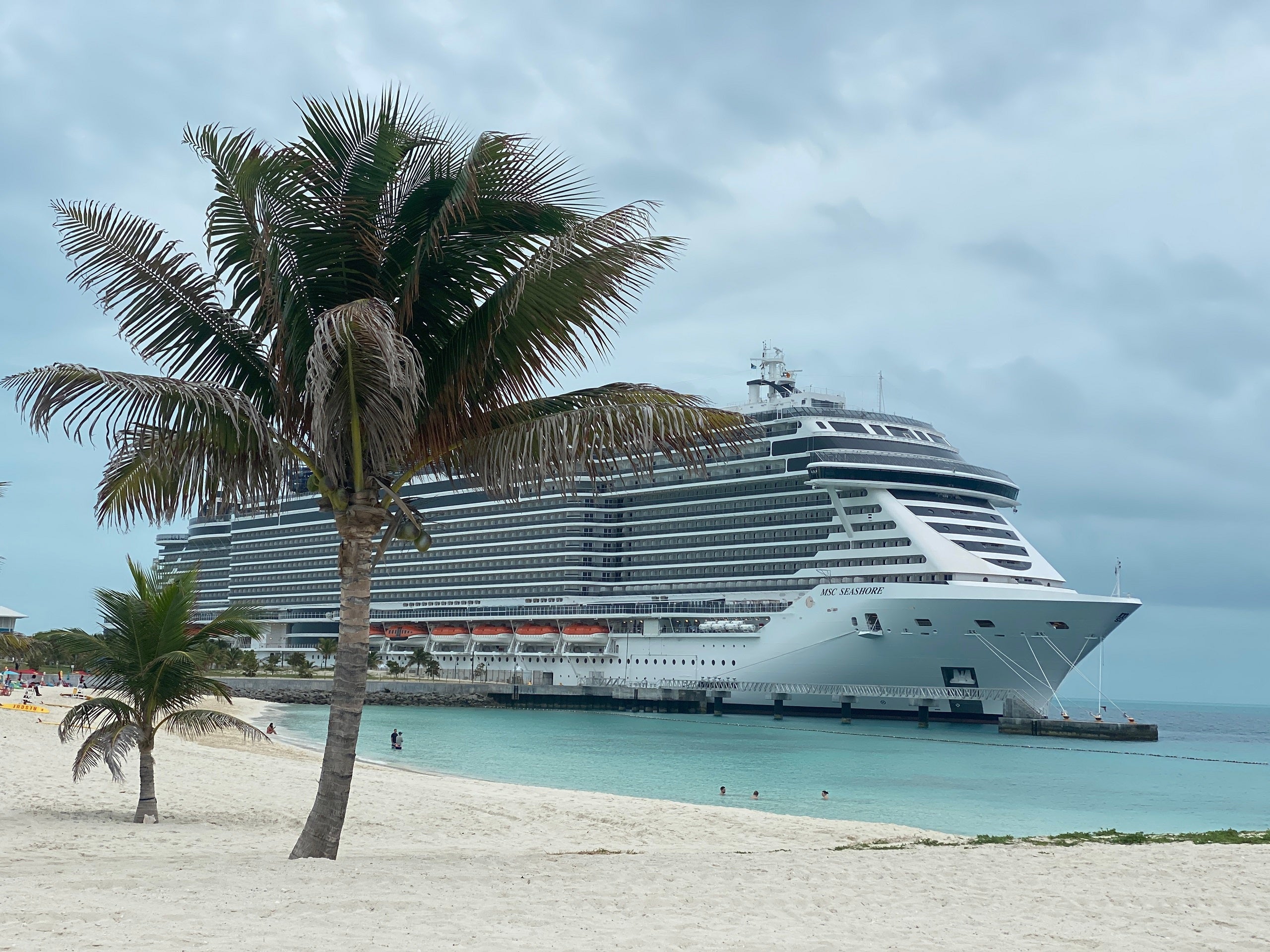MSC's newest cruise ship is gorgeous, but is it ready for Americans? A first look at MSC Seashore
Editor's note: MSC Cruises provided TPG complimentary access to MSC Seashore during a two-night, nonrevenue media preview event. The opinions expressed below are entirely from the author and weren't subject to review by MSC Cruises or any external entity.
I've just sailed MSC Seashore, the first ship in MSC Cruises' new Seaside EVO Class — a variation of the line's original Seaside Class — which offers passengers affordable elegance and plenty of outdoor spaces to connect with the sea.
Following a two-night media preview voyage to Ocean Cay, MSC's private island, I've got some thoughts about the vessel. Here, I'll walk you through how it differs from fellow U.S.-focused ship MSC Seaside, what it does well, what needs some work and what you can expect if you sail.
[table-of-contents /]
The backstory
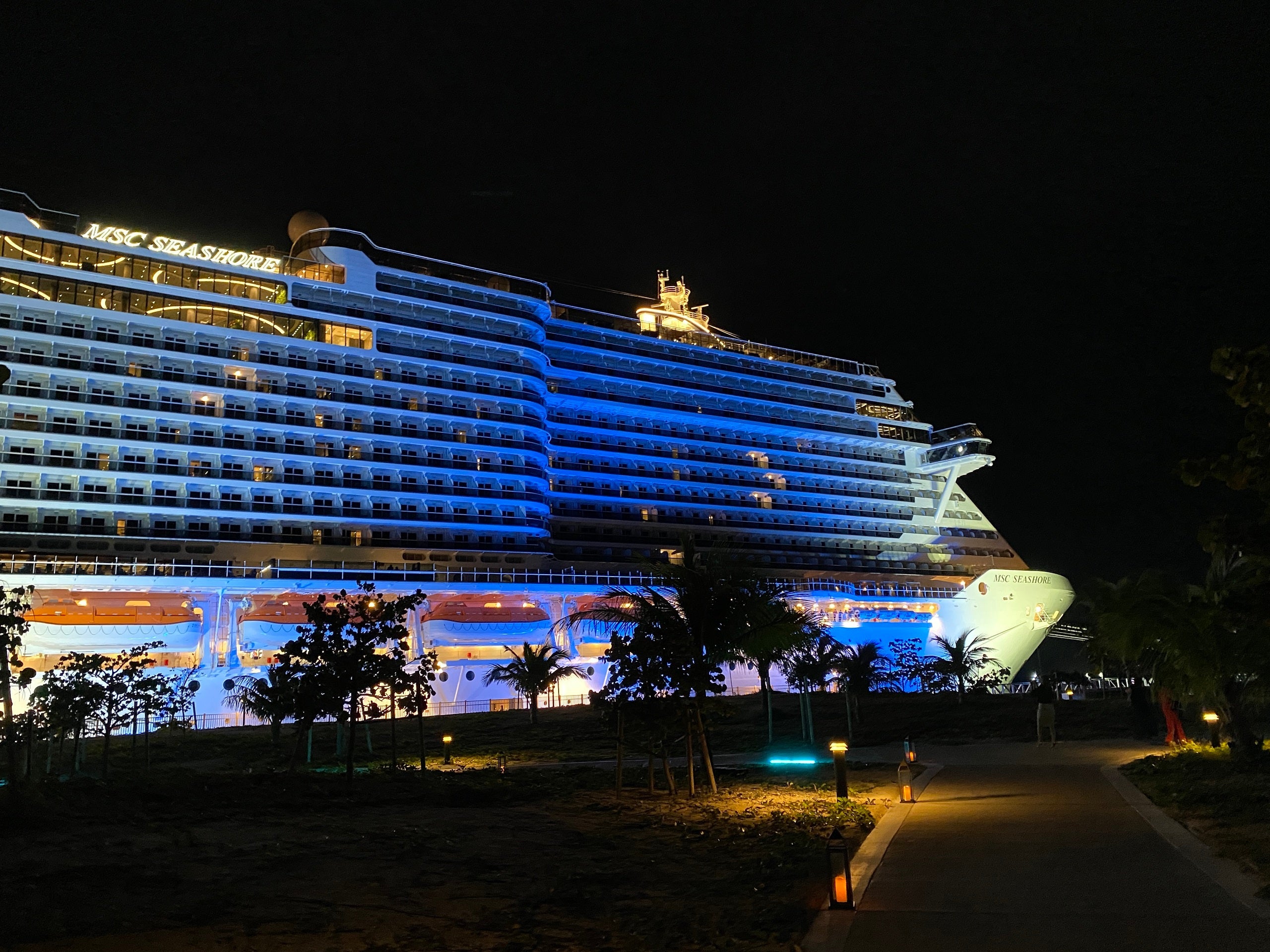
Although it has been around since the late 1980s, the cruise arm of the behemoth Mediterranean Shipping Company has only been wooing the North American market for just shy of a decade. The company still remains an enigma to many travelers.
In 2013, the line "Americanized" its MSC Divina ship. It was built a year earlier for a European audience, but the line decided to make it fit the American market by adding a movie screen on the pool deck, cutting back on smoking areas, stocking more brands of beer and soda, and revamping some entertainment and menu items.
Since then, instead of retrofitting existing vessels for the U.S. and Canadian demographics, MSC Cruises has added new hardware purpose-built for Americans to the lineup of ships it has been constructing at a breakneck pace. (The line is currently the world's third-largest cruise brand, and with plans to launch more than 10 new ships in the next few years, it's poised to quickly move into second place.)
The first vessel built exclusively to cater to Americans was MSC Seaside, which began sailing in 2017 as the flagship of the line's Seaside Class. It tried hard but struggled with the little things that gave away its roots: Dinners took more than two hours, coffee was nonexistent after dinner for those who wanted a cup with dessert, announcements were made in multiple languages and service was of the more standoffish, less conversational variety that's common in Europe.
Fast forward four years, and MSC Seashore is the line's latest attempt to show U.S. cruisers what it can do. Has MSC finally been able to figure out the secret formula that will make Americans swoon?

First impressions
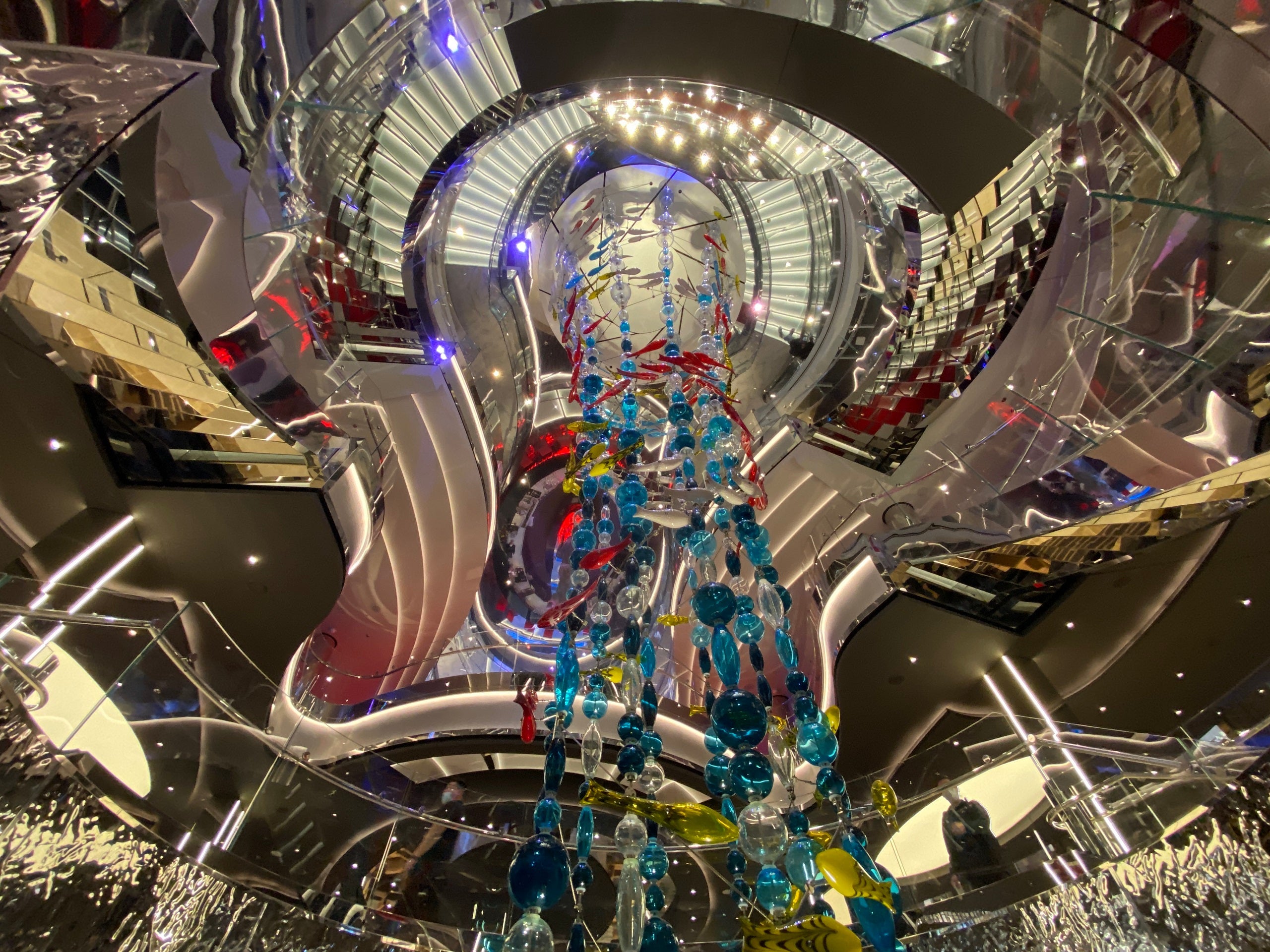
The ship is gorgeous. With interior design elements, such as upholstery and art, chosen by Rafaela Aponte — wife of MSC owner Gianluigi Aponte — elegance abounds. (Check out the Danza del Mare glass sculpture spanning decks 5 to 8, midship. It's a stunning piece of work by Italian glassmaker Venini.)
As with its Seaside-class counterparts, one of MSC Seashore's biggest highlights is its sweeping four-deck atrium, which serves as one of the ship's main hubs of activity. Chrome and colored lights give it a hip feel, but the vibe also oozes sophistication, courtesy of a transparent, backlit staircase inlaid with thousands of Swarovski crystals.
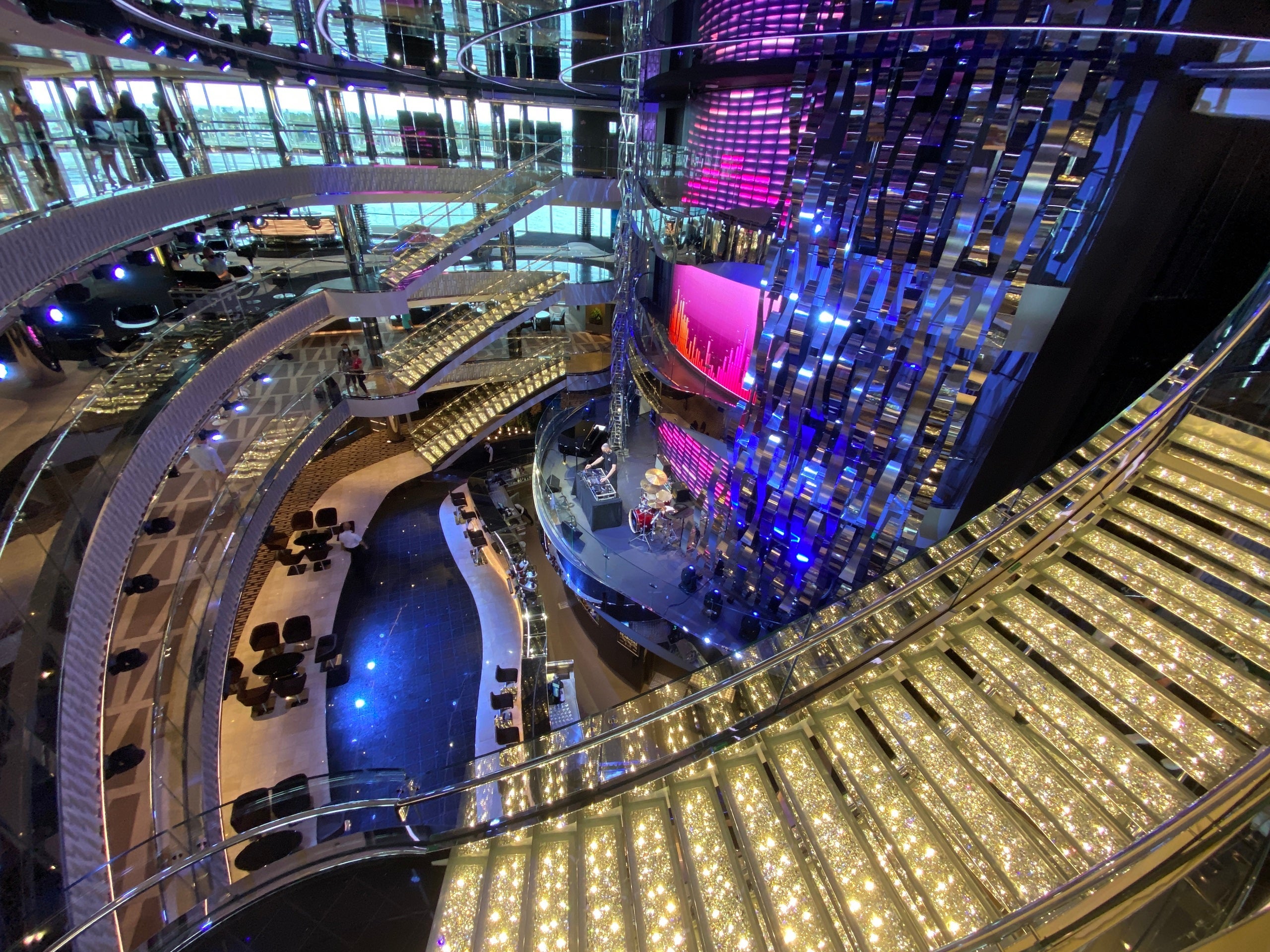
On paper, the vessel has 20 decks, but true to Italian custom, there is no Deck 17. (In Italy, it's 17, rather than 13, that brings bad luck.) This is one of several ways the ship acknowledges its heritage, despite its target demographic.
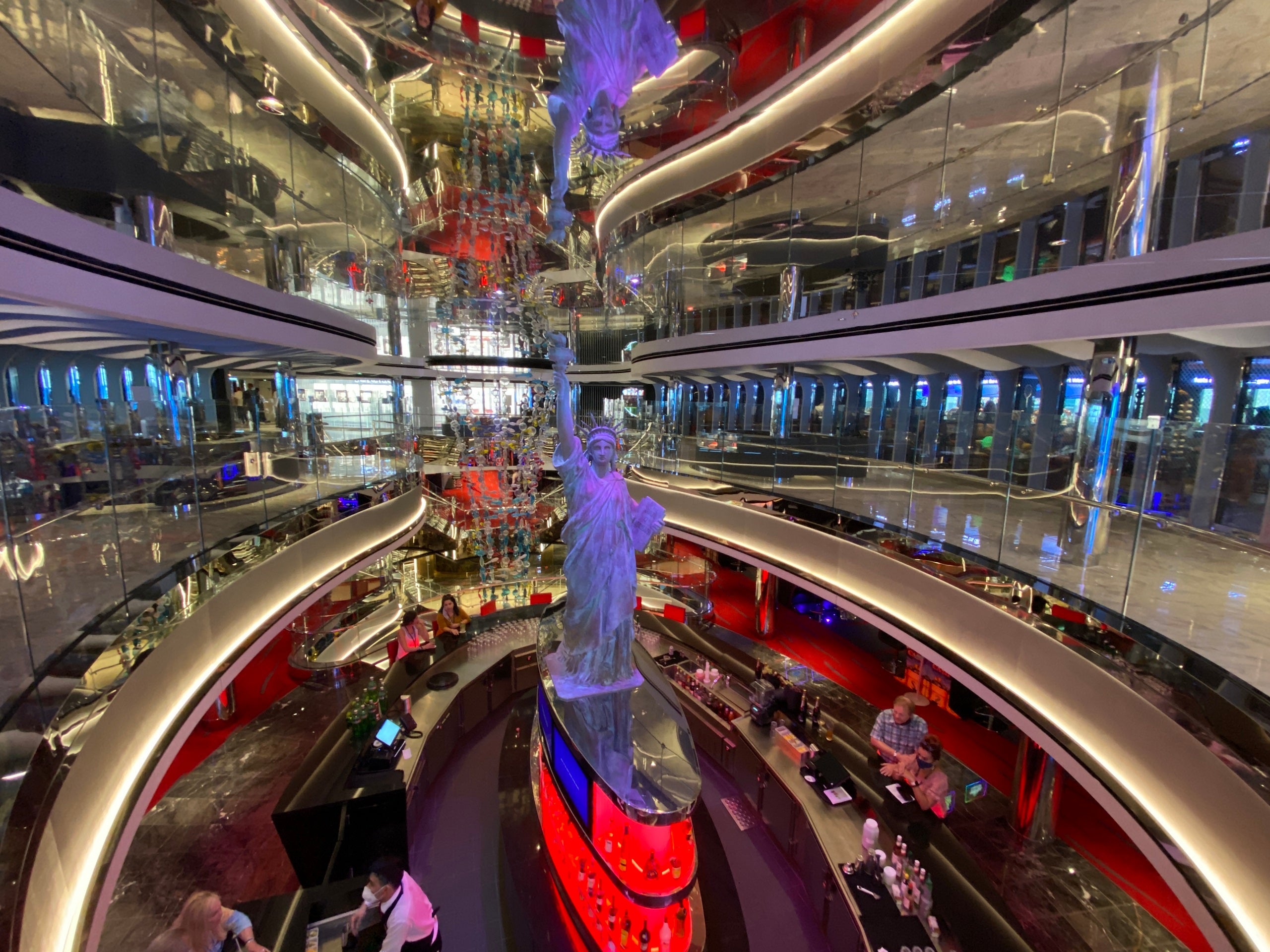
In contrast, MSC Seashore employs a New York City theme that's equal parts cute and corny. Meant to appeal to American clientele, the dining rooms boast names like Manhattan, Central Park, Tribeca and 5th Avenue. You'll also find the Brooklyn Cafe, the Uptown Lounge and the Long Island Pool and Bar. In the Times Square area, faux skyscrapers and TVs posing as electronic billboards complement a twice-nightly New Year's Eve digital ball drop following each night's shows in the nearby Madison Theater. Overall, I found it endearing, familiar and, in some ways, even innovative.
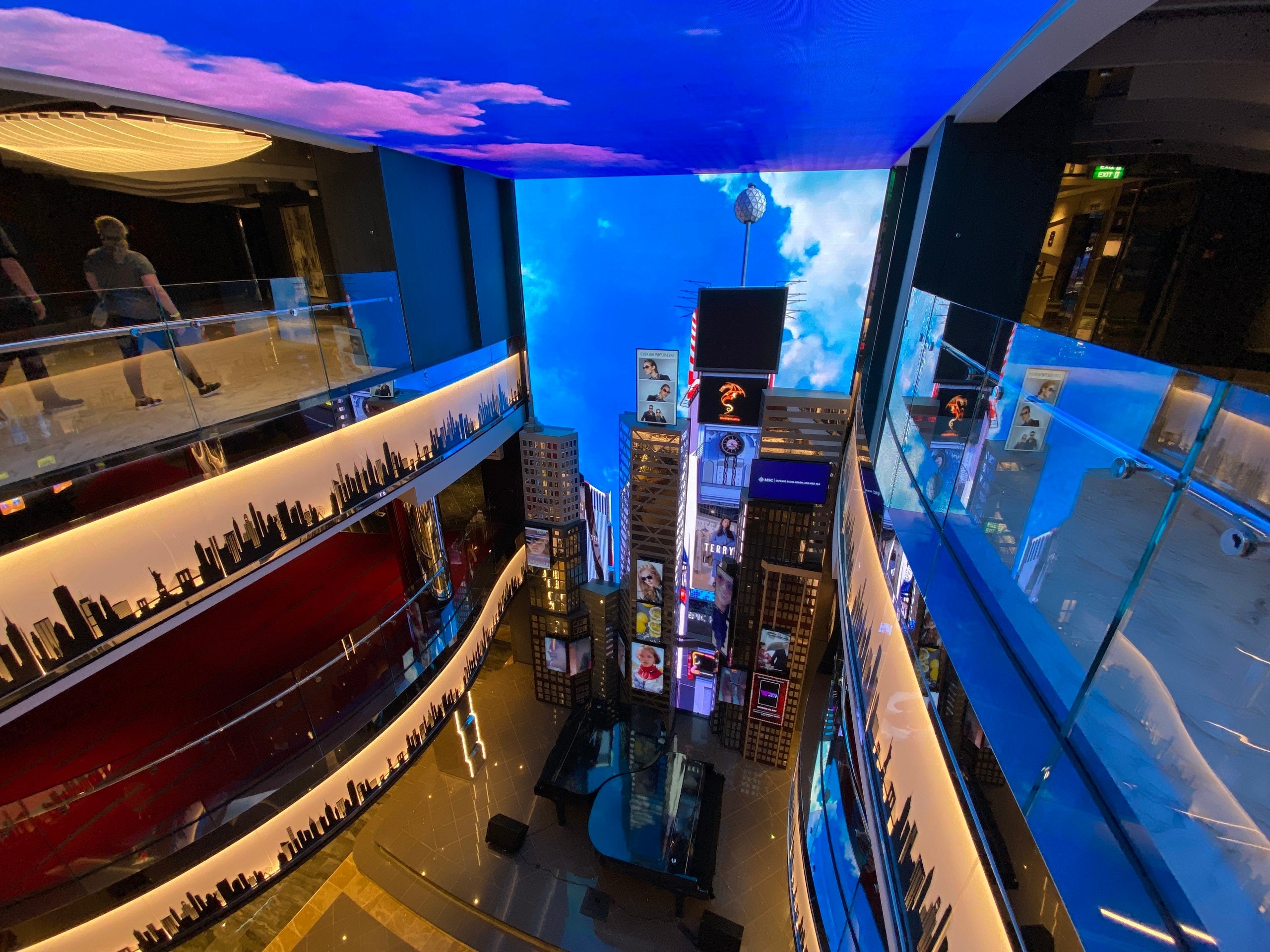
However, there isn't a ton that differentiates Seashore from its smaller Seaside sister class. The main changes we noticed, in addition to the NYC theme, are the lack of top-deck ziplines, fewer waterslides and an expanded gaming and arcade area.
Designers revamped the layout for alternative eatery enclave Chef's Court and the accompanying bar. They replaced the French bistro with a Mexican restaurant and scrapped the second family-focused buffet found on Seaside vessels, opting instead to expand the standard buffet. Notable new additions to the deck plan include an aft-facing infinity pool; Le Cabaret Rouge, a secondary lounge that hosts nightly cabaret performances; and a couple of selfie spots that are intentionally Instagrammable.
Below, I'll outline the major highlights and share some of my favorite — and not-so-favorite — bits about the ship.
Dining and drinks
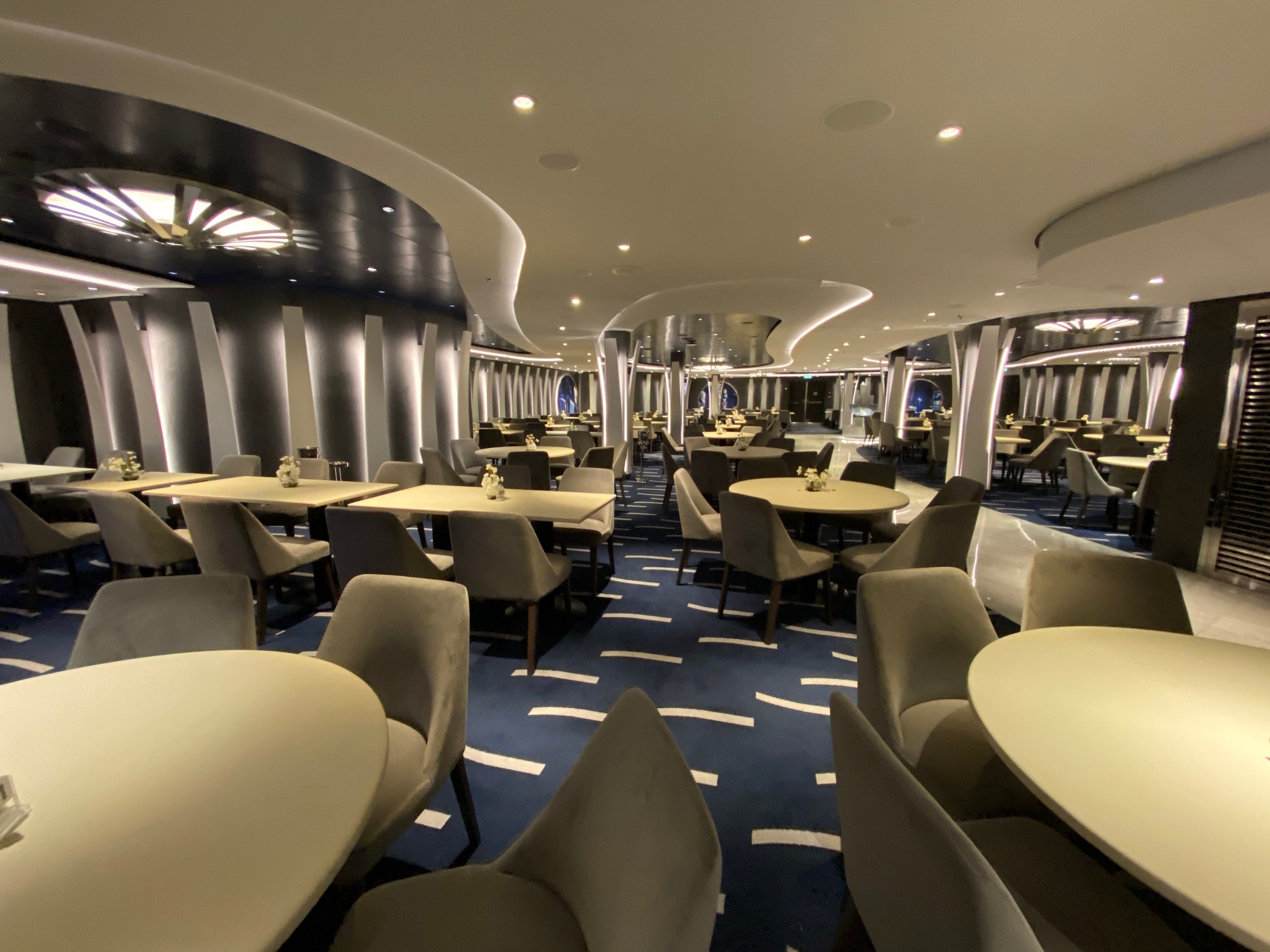
Food
Housing 11 restaurants — including five for-fee options and four included main dining rooms — and 18 bars and lounges, MSC Seashore offers a ton of variety. My two-day preview voyage was sailing at limited capacity; due to time constraints and the small number of passengers onboard, I was able to have full dinners in one of the main dining rooms, lunch at the buffet and between-meal samples from each of the Chef's Court venues.
The four main dining rooms on the ship all feature the same menu, which changes nightly. The venues include 5th Avenue Restaurant, where midcentury modern meets The Jetsons; Tribeca Restaurant, which gives off penthouse vibes; Central Park Restaurant, showcasing green hues and accent plants; and Manhattan Restaurant, which reminded me of an upscale department store in terms of decor.
Dinners still take forever, but service throughout the ship has improved immensely, especially in the dining rooms. Perhaps the restaurant staff was working out new-ship hiccups, but it took so long for everyone at my table to receive their main courses on the last night of the voyage that passengers from other tables ate their dessert and left to see the show before we were served.
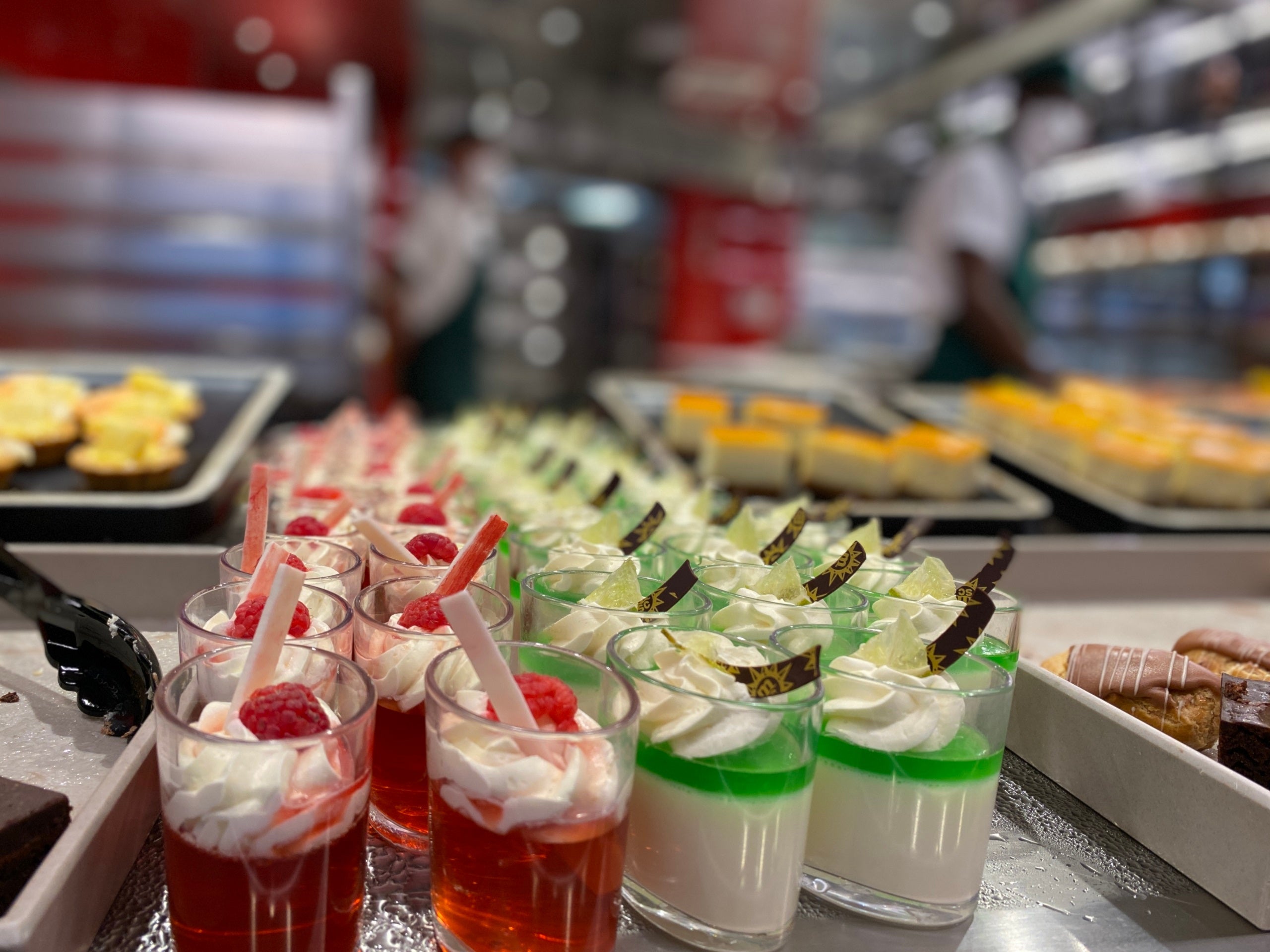
The Marketplace Buffet, which takes up about half of Deck 16, is notable for its sheer size and variety of food. Just about anything you could want is found there — meats and cheeses, sandwiches, soups, salads and desserts. The atmosphere is totally casual, making it the perfect place for a quick, free bite. If you love pizza as much as I do, don't miss MSC Seashore's take, which includes standard cheese and pepperoni selections, as well as more unusual choices like pies with black crust (thanks to activated charcoal).
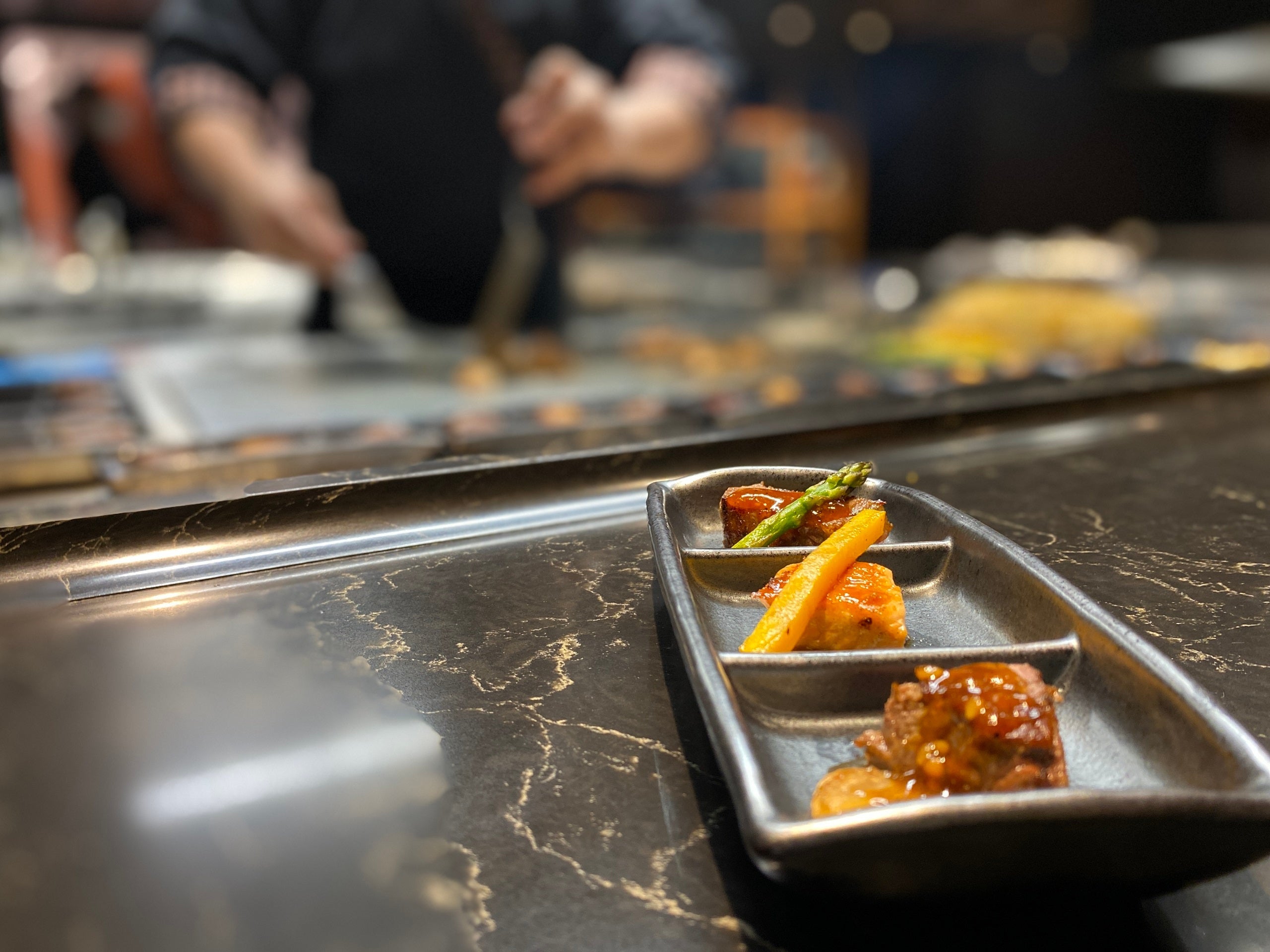
Most of MSC Seashore's extra-cost dining venues are located in a central Deck 8 area called Chef's Court. Restaurant choices include Butcher's Cut, a steakhouse with superb meats, potatoes and desserts; Ocean Cay, serving up fish and seafood dishes in a nautical-themed outpost; and Kaito Sushi and Kaito Teppanyaki, the former offering conveyor belt sushi and the latter offering grill-side performances in one of the largest teppanyaki venues I've ever seen. (Try the salmon or Wagyu beef. You won't be disappointed.)
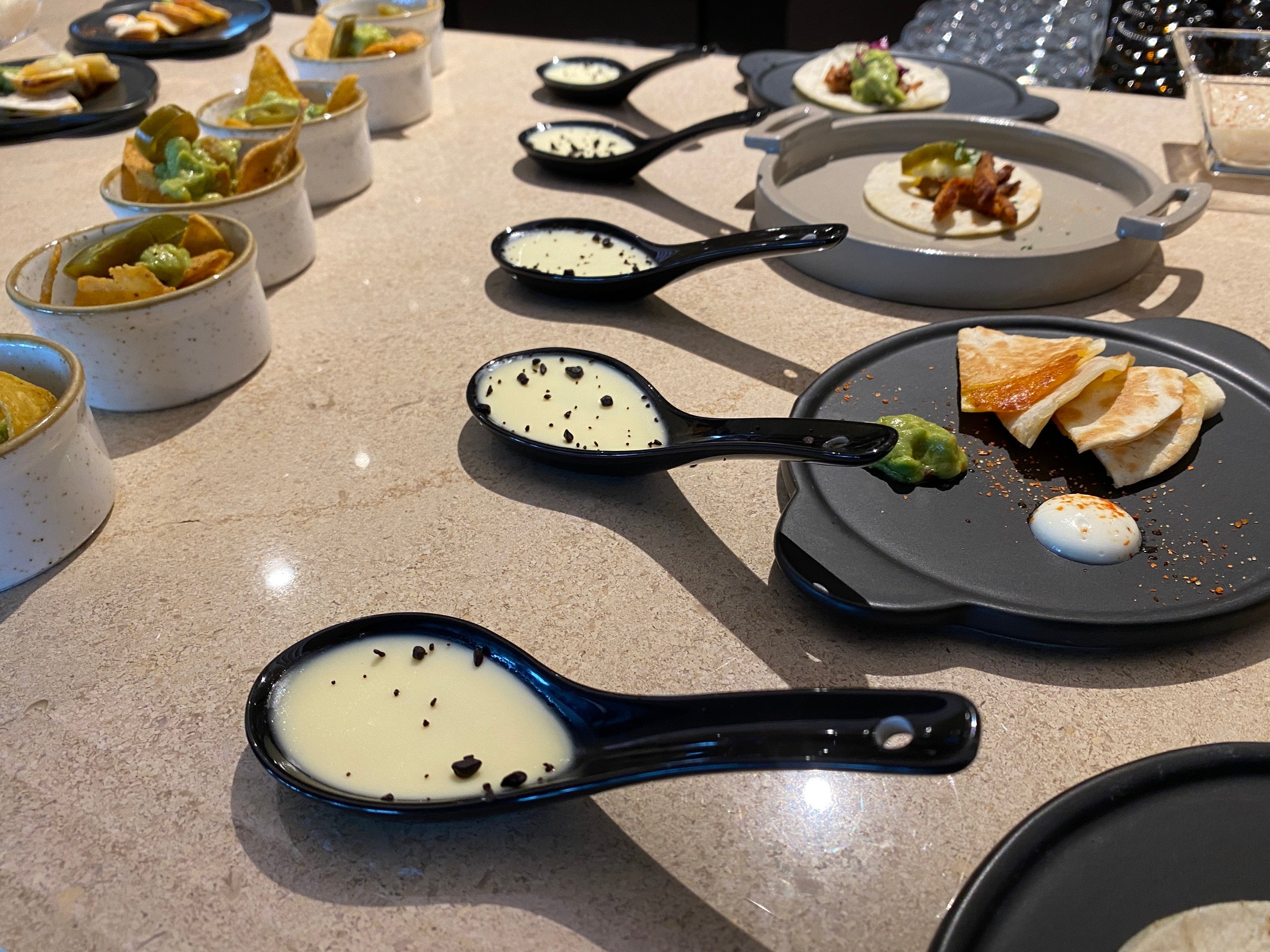
Hola! Tacos and Cantina is a new, centrally located restaurant. It's on Deck 8, just above the atrium area, and it takes the place of the French bistro on Seaside-class vessels. Festive colors point the way to ample seating, and the tacos, quesadillas, guacamole and flan are to die for. Looking to grab a drink with your meal? Try one of several margarita flavors, including original, strawberry, mango, pineapple and vanilla.
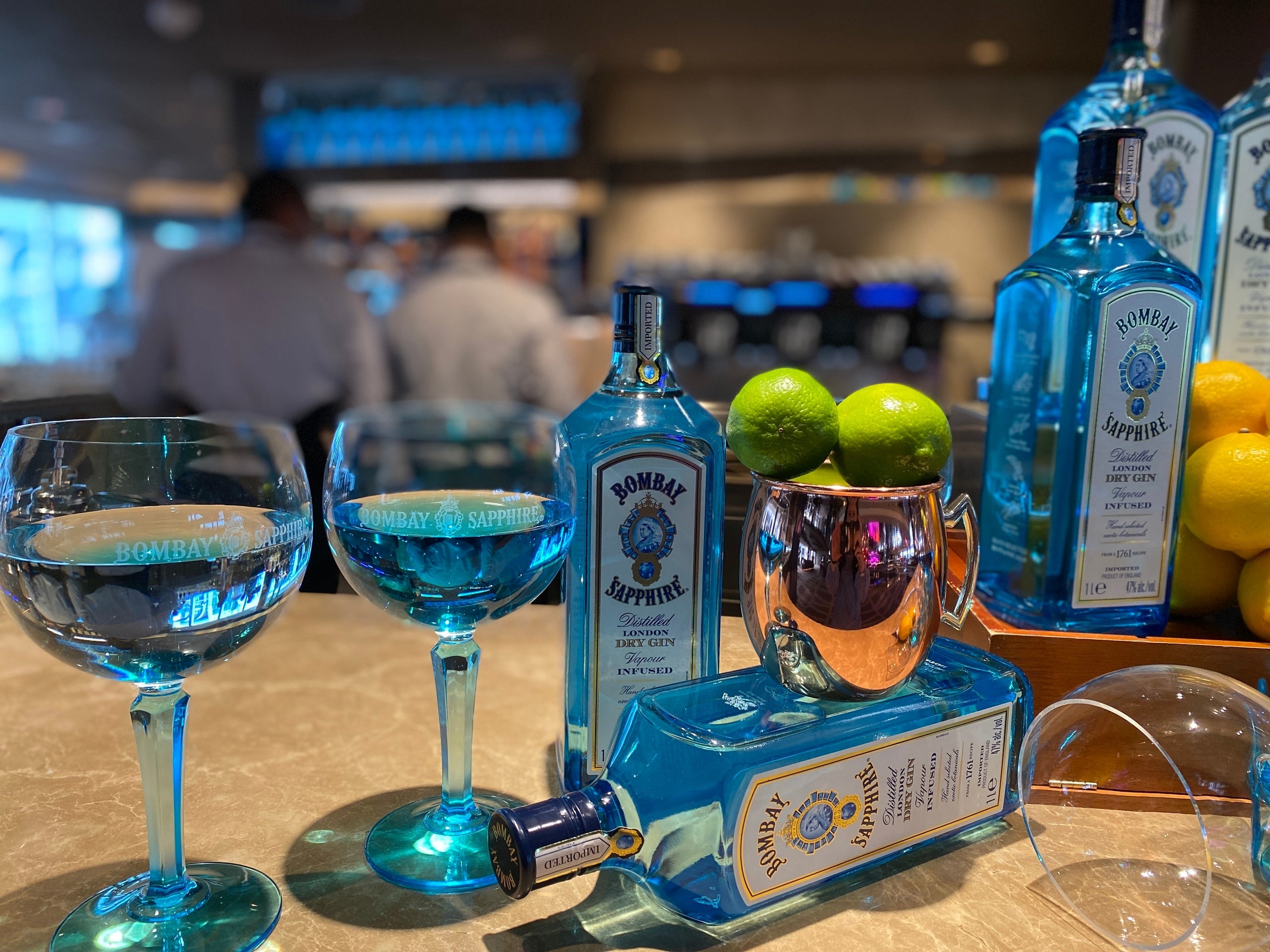
Drinks
Alcohol, soda, smoothies and specialty coffees and cocoas cost extra on MSC Cruises ships. You can pay per drink or invest in a drink package. However, MSC's packages come in five varieties, and what's covered isn't always clear. Prices vary by season and destination, but the most expensive one, which includes everything, is the Premium Extra package (formerly Premium Plus).
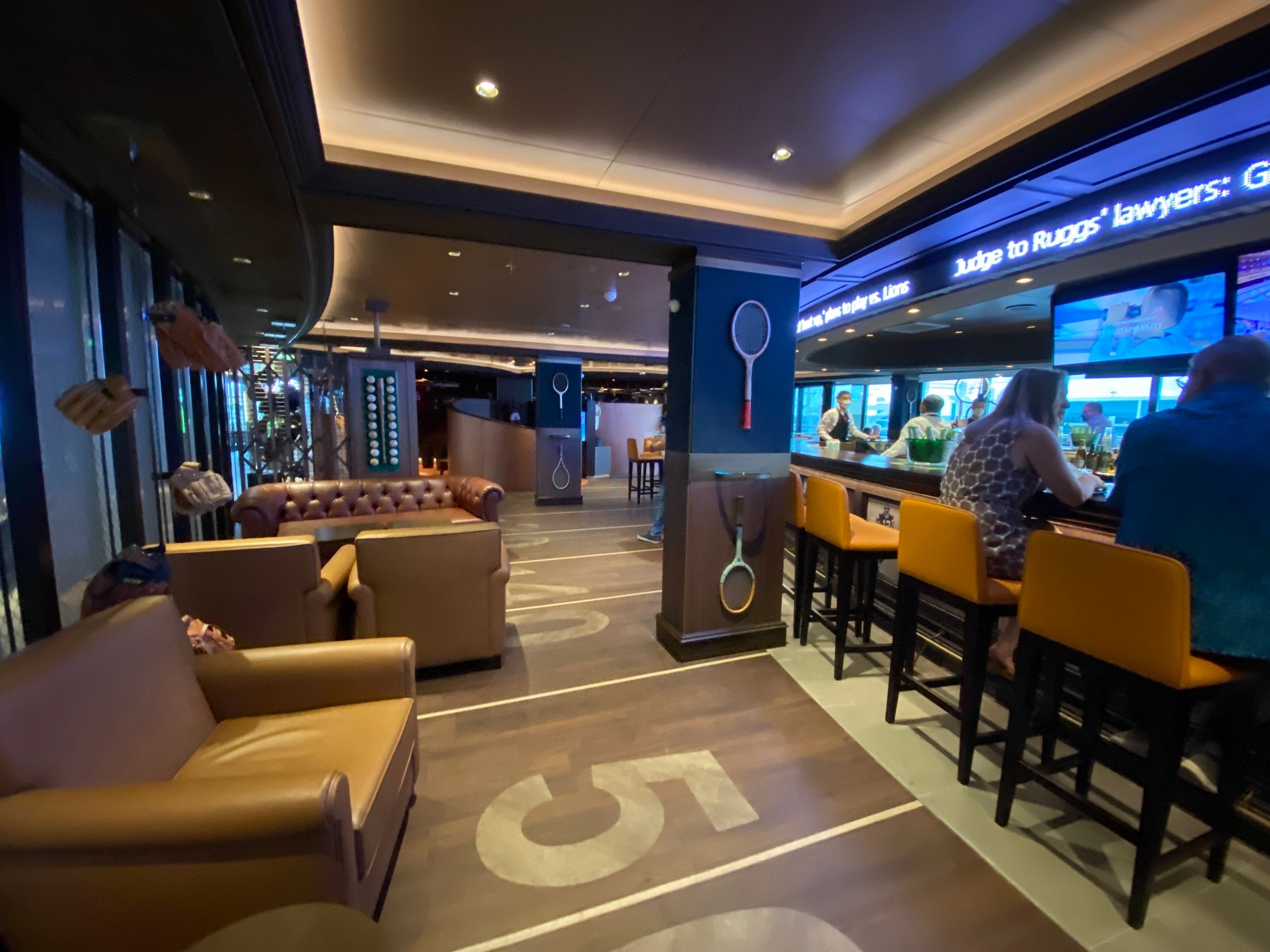
American Sports Bar is a terrific spot if you're hoping to watch your team play while you're at sea. I could see myself spending quite a bit of time there, largely because of its fun sports memorabilia decor and private areas for viewing sporting events.
It also has an adjacent billiard room — a new feature for Seashore — plus added-fee nibbles and one of the most impressive beer lists I've seen on a ship (including one of my favorites, Yuengling Lager, which isn't found on vessels in most other fleets). The sports bar also has a small menu of bar bites, including what I'm told is the best burger on the ship. (Unfortunately, I didn't have a chance to try it for myself.)
The Seashore Bar, named for the ship, is located at the base of a three-deck entertainment space that's adorned with chrome and colored lights and features a couple of small stages for performances. The bar offers up a standard menu of drinks, as well as excellent coffee and cocoa. Any of the nearby tables is perfect for sipping your beverage while people-watching.
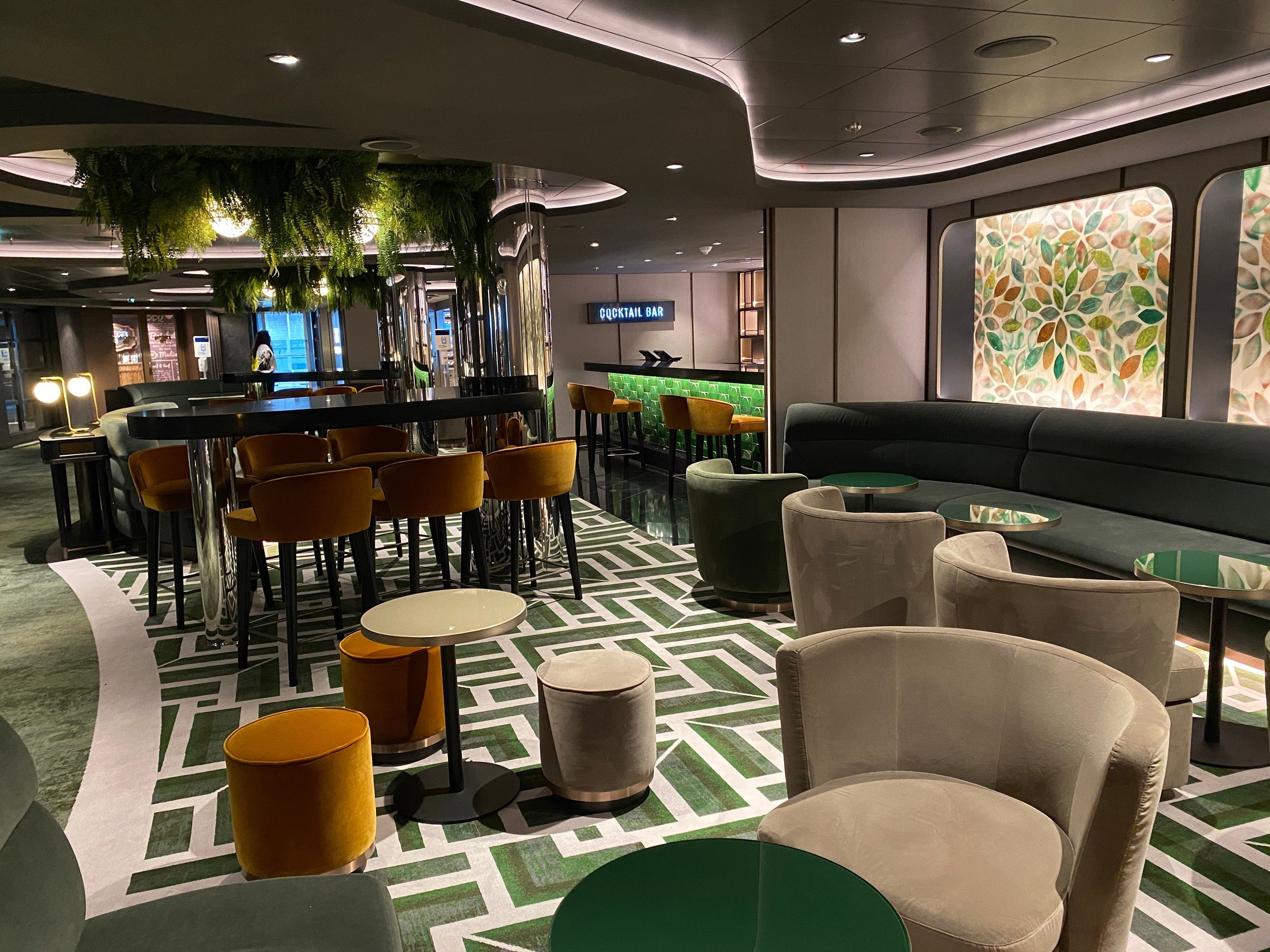
The Chef's Court Cocktail Bar is ideal for a tipple before dining at Butcher's Cut, Ocean Cay or Kaito Sushi or Teppanyaki. The menu is fun, but the ambiance is even better, with plenty of rich colors and a laid-back but elegant vibe. Friends can gather in the plentiful seating alcoves.
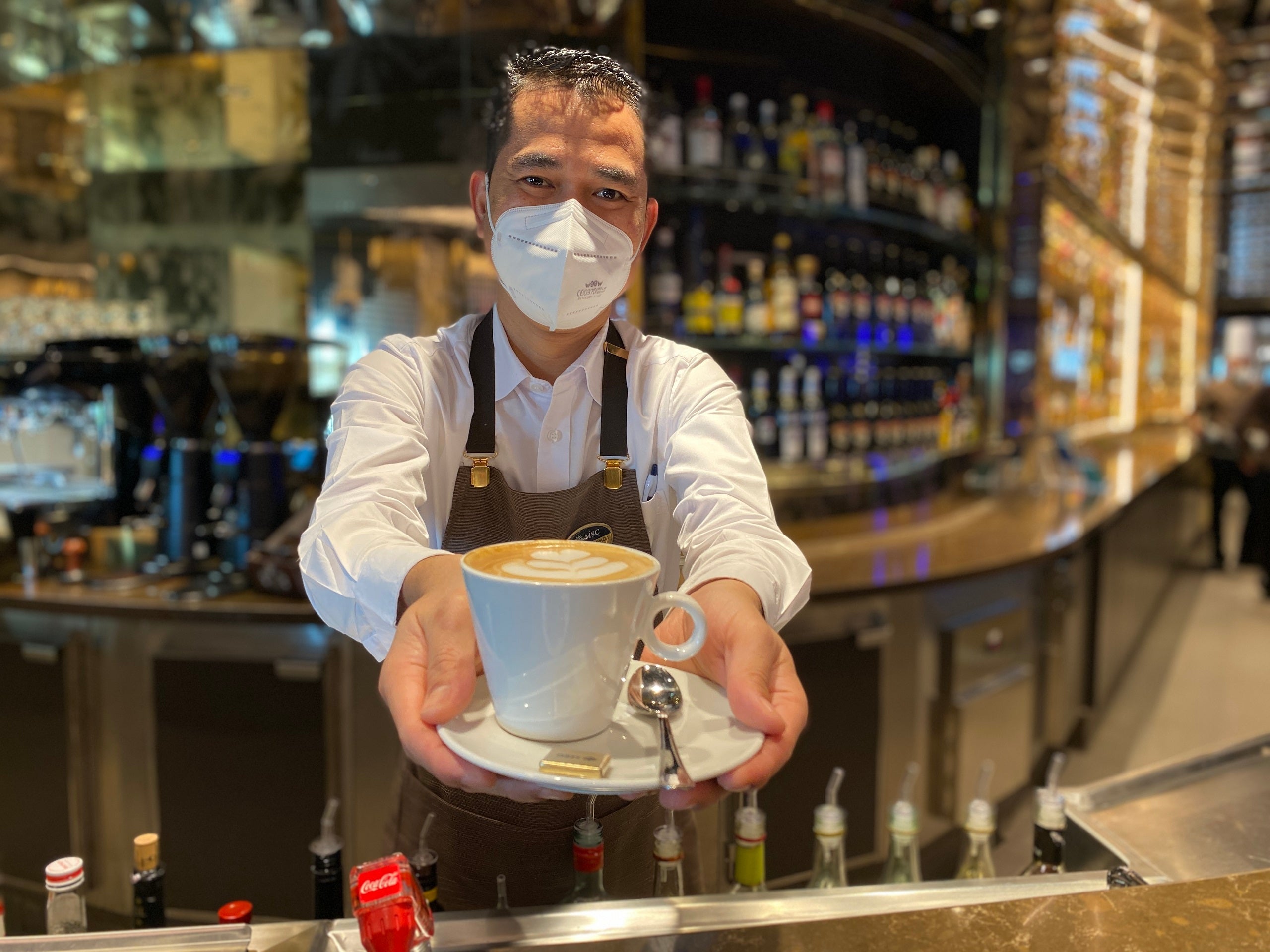
My absolute favorite place to grab a snack and a cappuccino is the Venchi 1878 Chocolate Bar. Located on Deck 6, near Times Square (which, unexpectedly, often afforded me a quiet place to work during the day), it offers tasty coffee beverages and chocolate-themed drinks (read: fancy Italian hot chocolate and chocolate cocktails), as well as chocolate candies, via a partnership with the famous Venchi Italian chocolatier.
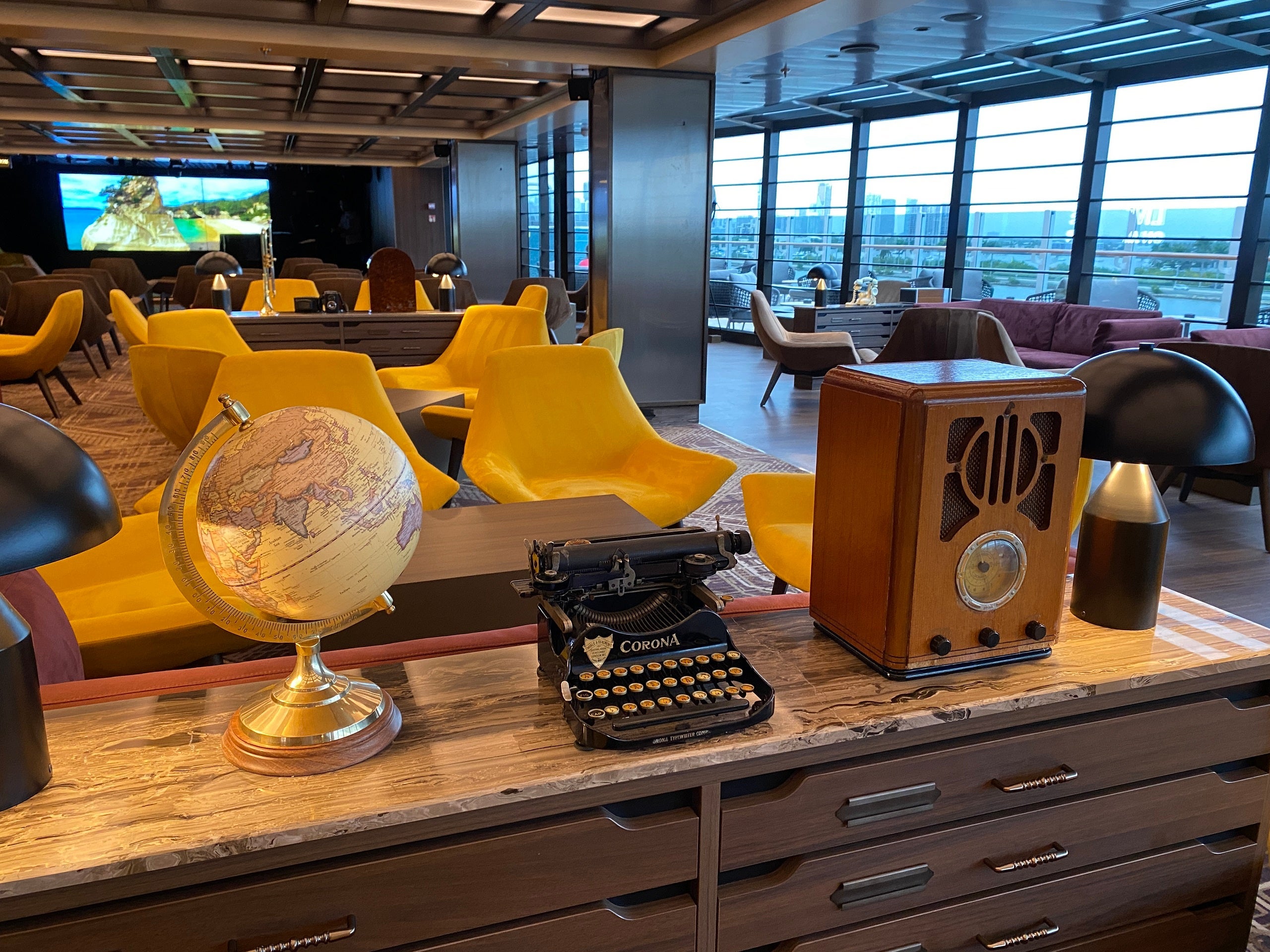
Another option if you're seeking respite from crowds and noise is the Brooklyn Cafe, a lounge area that evokes a hip travel writer's den. Decorated with globes, typewriters and plenty of cushy seating, it feels like a creative space fit for anyone seeking coffee or cognac.
With 18 bars and lounges onboard, I probably wouldn't have been able to try them all, even if I had done a weeklong sailing. Other notable watering holes include standard pool, casino and buffet bars, as well as the Shine Bar, which specializes in mixology, and the Wine and Champagne Bar, where you can snag some vino or bubbles.
Cabins
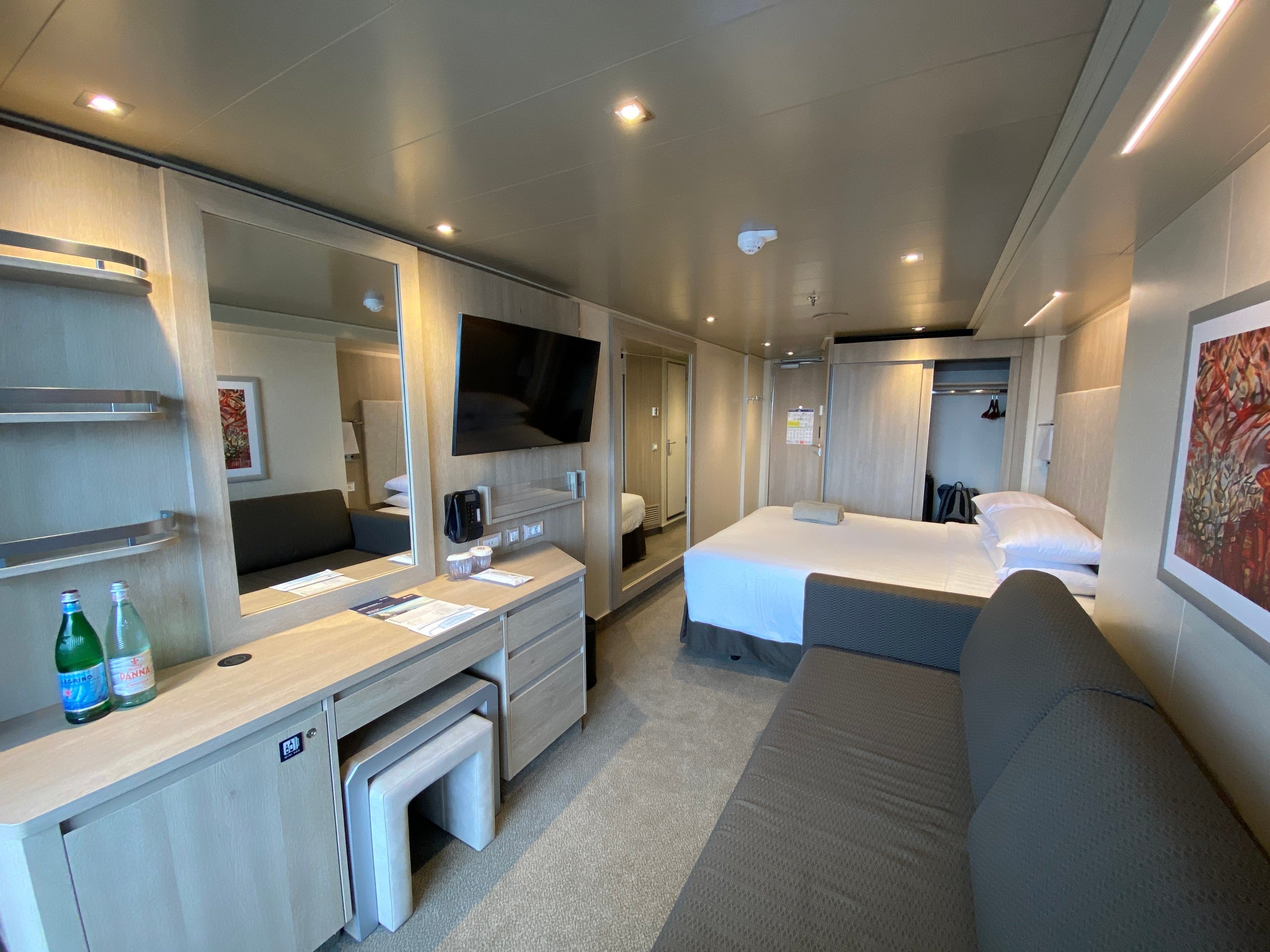
MSC Seashore offers a variety of standard cabin types, including insides, outsides with windows and balconies with verandas. They are outfitted with bedside closets that are sometimes difficult to access because of their proximity to the beds, as well as the sliding-door system that only allows one side of the closet to be accessed at a time. However, the accommodations are cozy and elegantly designed, and there's plenty of drawer and shelf space, as well as under-bed storage for suitcases.
All cabins are equipped with safes, hairdryers (which are surprisingly powerful compared with those found on other ships), bedside tables with reading lamps, vanity/desk areas with small stools, minifridges and house phones for calling the front desk, spa, alternative restaurants and other locations onboard, as well as other staterooms.
Each room also has at least one television that features live TV, onboard channels, movies and the ability for passengers to check their onboard bills. Sadly, my TV didn't work for most of the sailing. Some rooms also come with pull-down beds or pullout sofas that sleep additional passengers.
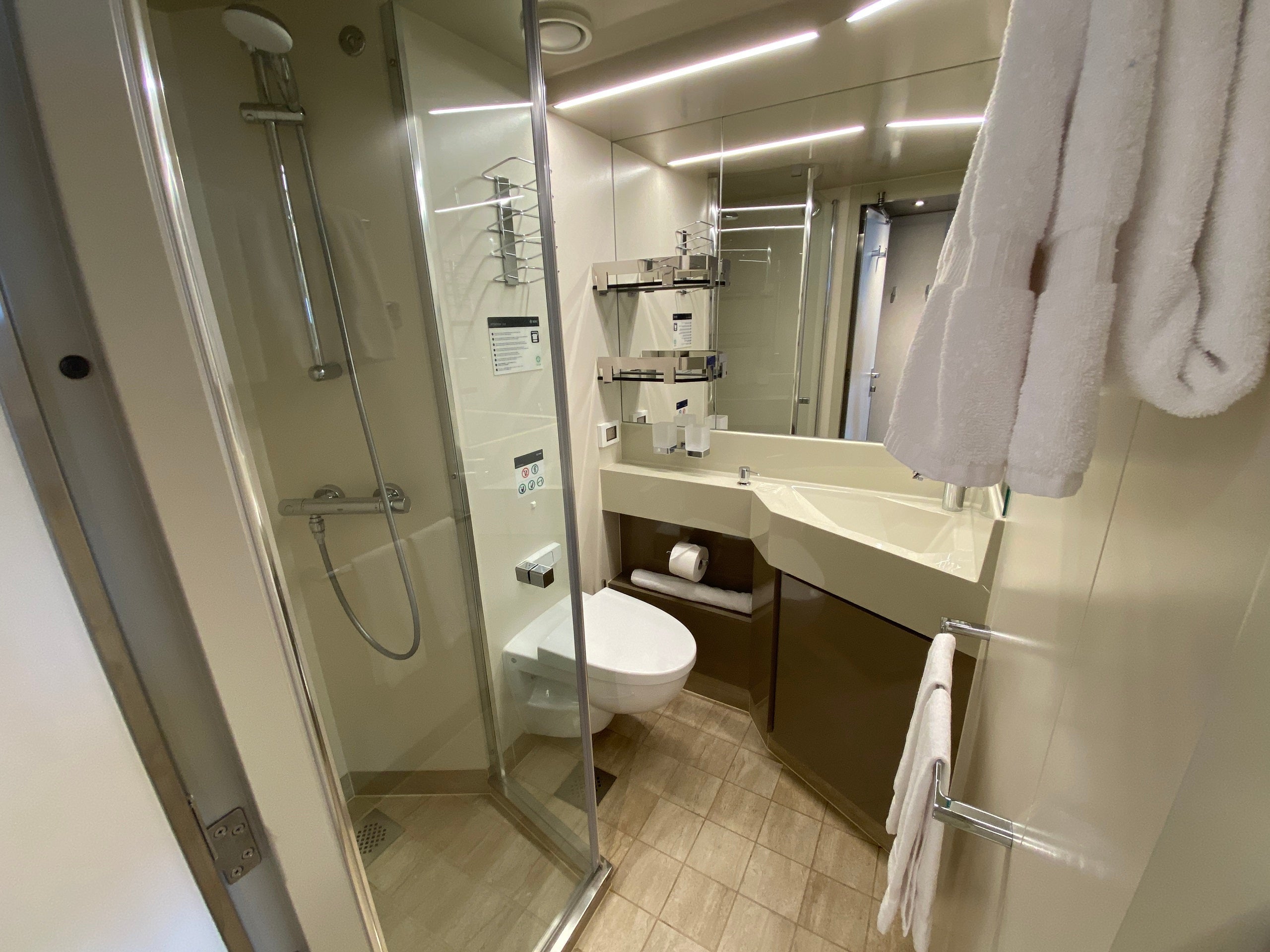
Even in the most high-end accommodations, showers are tiny. On the plus side, shower doors mean you won't have to battle with clingy curtains, and shaving bars are a useful addition. Toiletries are MSC Cruises' special brand, but they seemed to be of higher quality than most of the free all-in-one shampoo and conditioner and shower gel found on other lines.
Other thoughtful touches include plenty of outlets and USB ports, although only one side of the bed allows for USB charging.
Rooms are also designed so you can't turn the lights on without inserting your keycard into a slot by the door. On other ships, you can game the system by inserting another card (credit card, membership card, driver's license), but, unfortunately, that trick doesn't work on MSC Seashore.
Forget about charging multiple devices when you leave your room because the electricity will be turned off. The only way to do it is to either use the built-in Hamlet wireless charger (if you have a compatible device), which takes forever, or have one member of your party leave their keycard behind while you explore the ship together. (Each person will need their card with them to go ashore, however.)
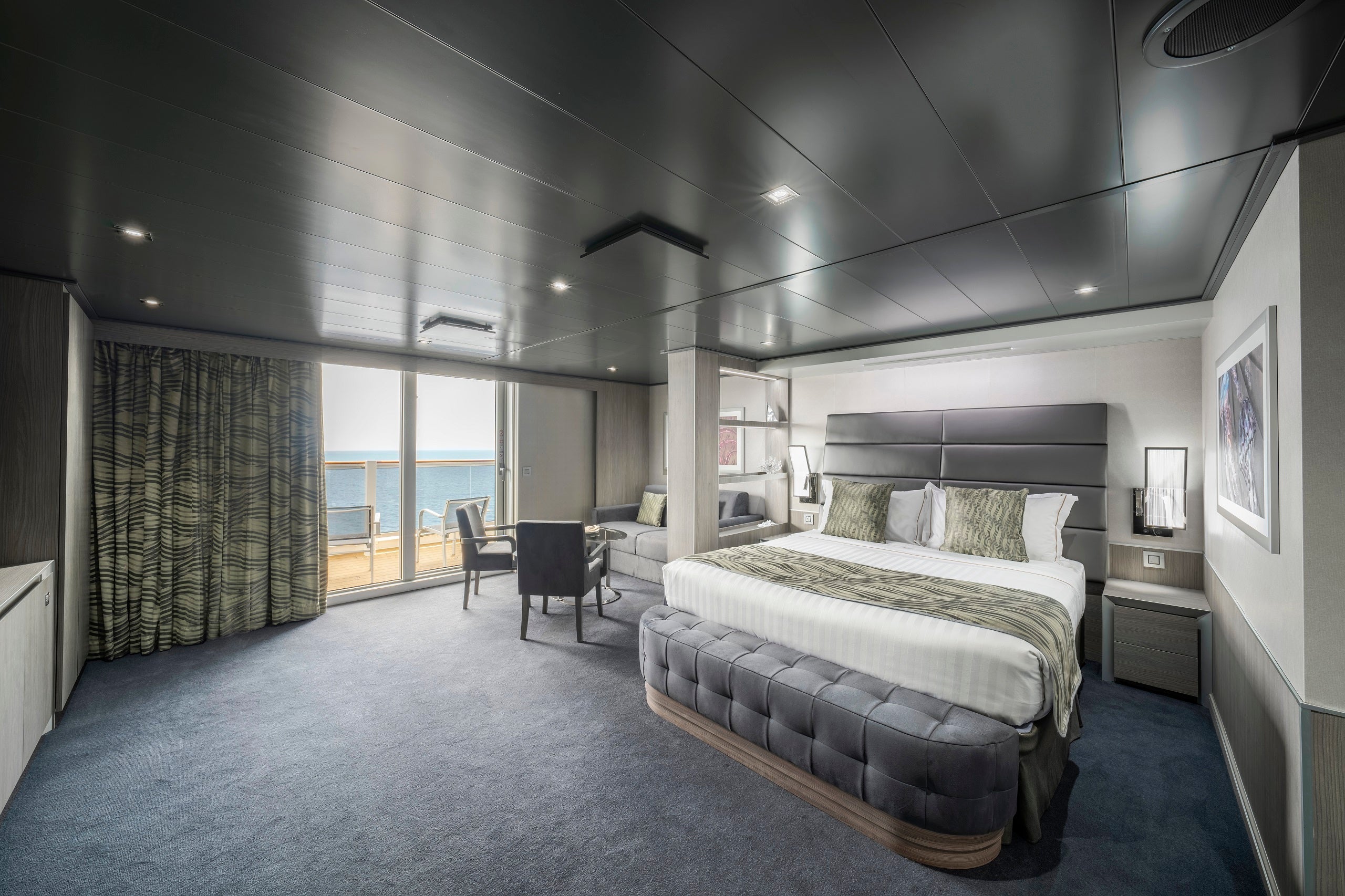
Where MSC Cruises' accommodations are particularly impressive is in its ships' Yacht Clubs. The Yacht Club is an exclusive onboard area of accommodations plus a restaurant, bar/lounge, pool and sun deck reserved for the Yacht Club guests. Occupants also have access to a slew of perks like concierge and butler service.
Yacht Club staterooms come in a variety of types, ranging from insides to cabins with multiple bedrooms and bathrooms. They generally include more space than standard accommodations, and they offer upgraded amenities like walk-in closets, dual bathroom sinks, extended balconies, private hot tubs and bathtubs in addition to showers.
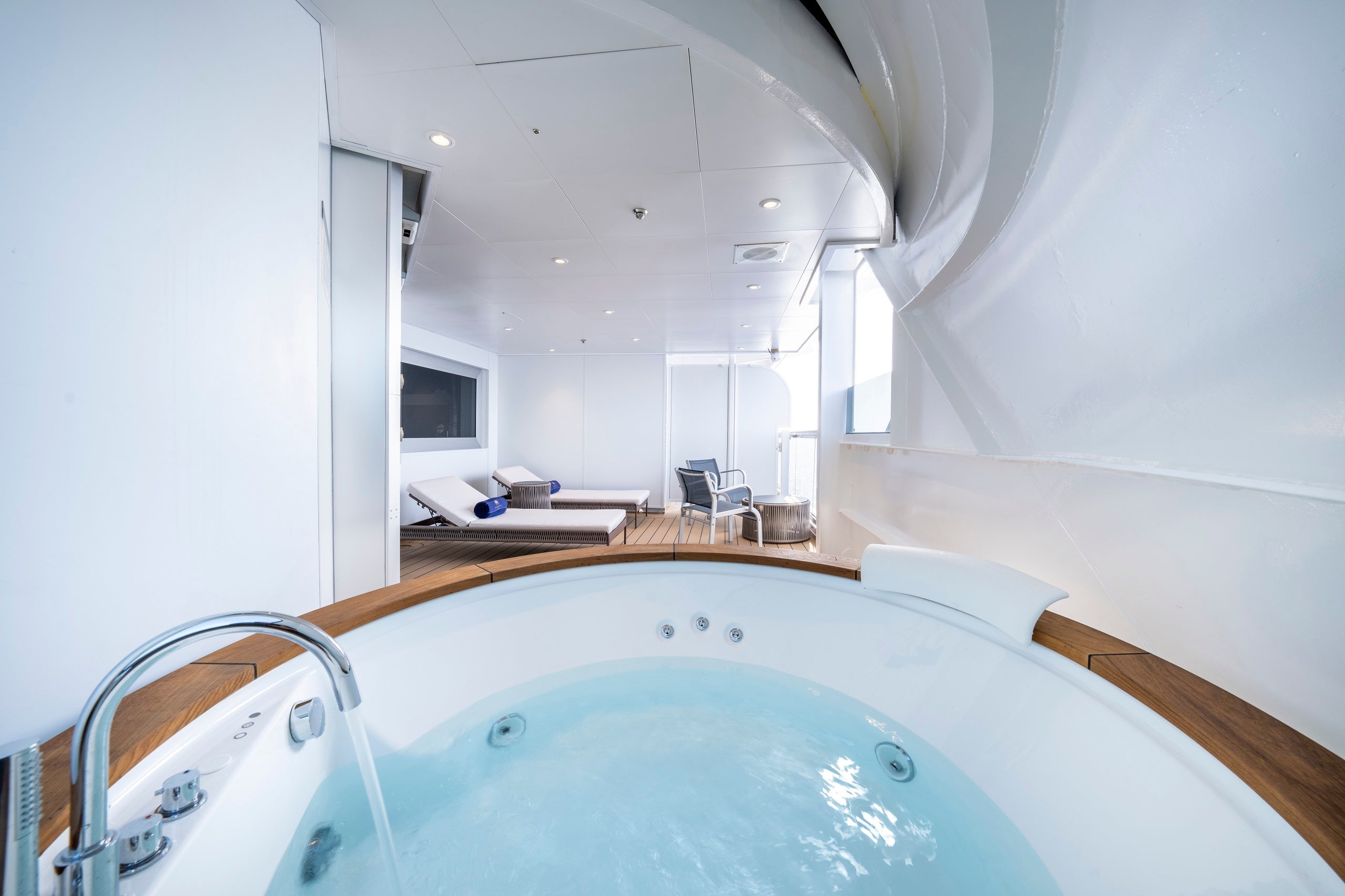
MSC Seashore was built with more than 70 wheelchair-accessible cabins that include wider doorways, grab bars and flat thresholds, among other assistive devices. They span all major categories, from inside to suite, including some in the Yacht Club.
There are no solo cabins on MSC Seashore, which seems like a huge oversight for such a modern ship.
Entertainment
Because MSC Cruises' fleet largely caters to an international audience, it's known for nonverbal entertainment, featuring magicians, acrobats, jugglers, aerialists and other intriguing performers. For years, the line's offerings have been, hands down, my favorite, so I was expecting something great. Unfortunately, what awaited me in the Madison Theatre during the preview sailing was cringeworthy, rather than jaw-dropping.
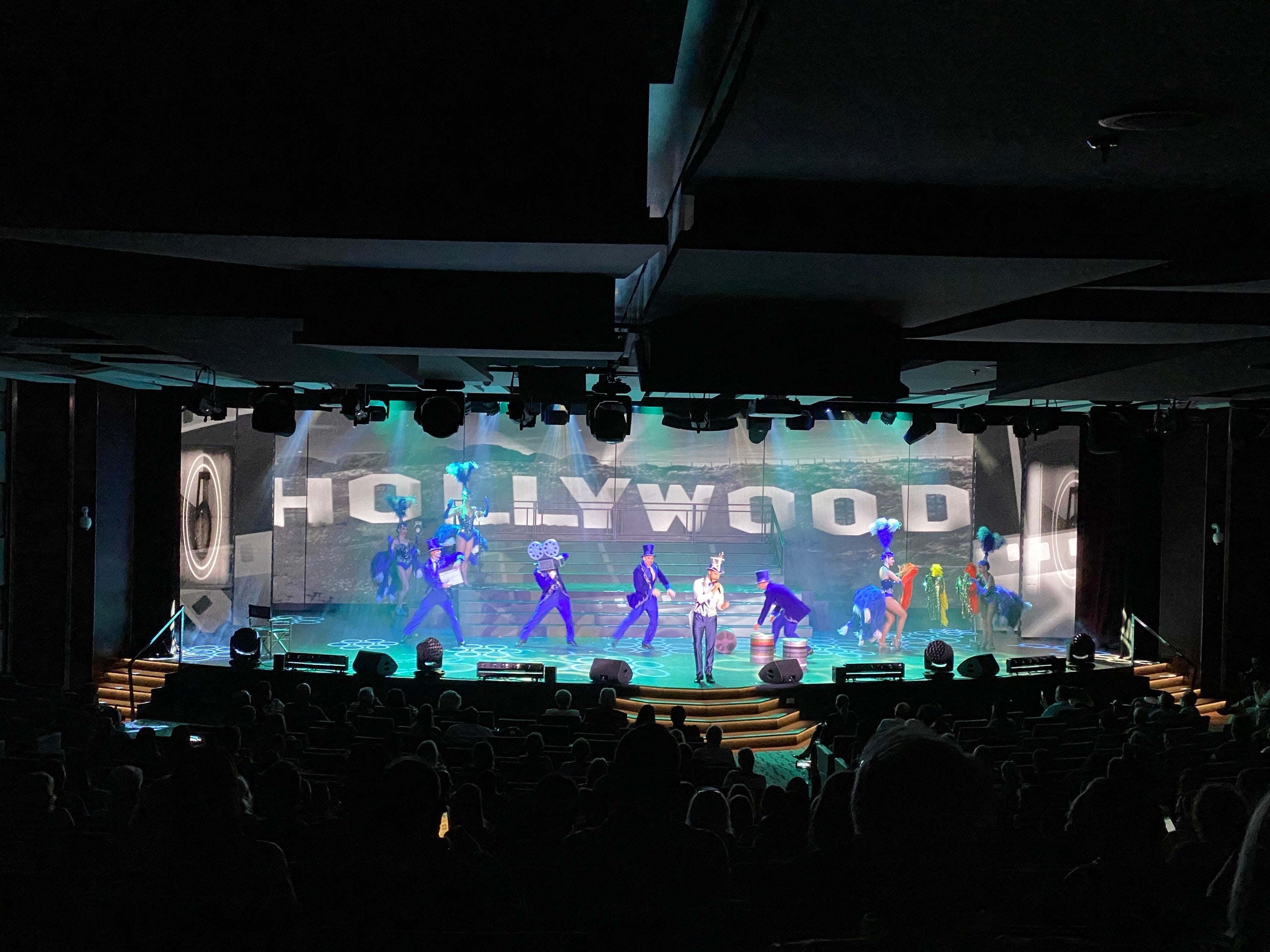
Exclusive to Seashore, "Coast to Coast" featured a troupe of singers and dancers who performed what someone who likely isn't American decided Americans would appreciate — a disjointed, stereotypical mashup of songs about U.S. cities and states that felt like it was trying too hard. Costume styles ranged from burlesque to Vegas showgirl; the latter reminded me of something a cruiser might have seen on a Carnival ship in the 1980s.
It's possible the vessel's other theater shows are more in line with the caliber of entertainment the line normally presents, but none were scheduled during my brief time onboard.
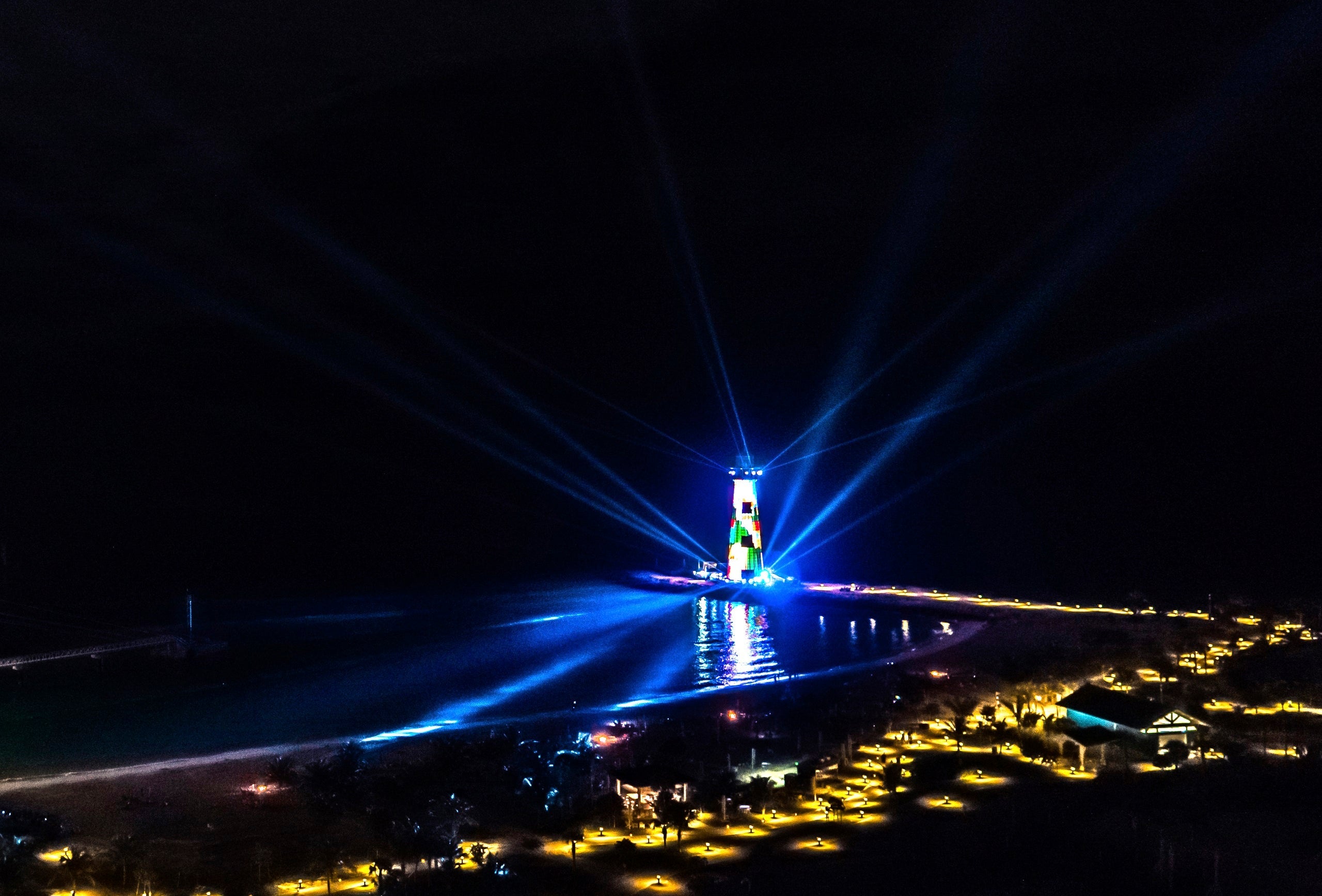
MSC redeemed itself, however, with its shoreside beach party on private island Ocean Cay in the Bahamas. On my voyage, Seashore docked there until midnight, and the absolute standout in terms of entertainment was the spectacular light show, set to music, that took place after dark. I could have watched it 10 times over without tiring of it. It's a standard part of late-night calls on the island, found on all itineraries departing from the U.S.
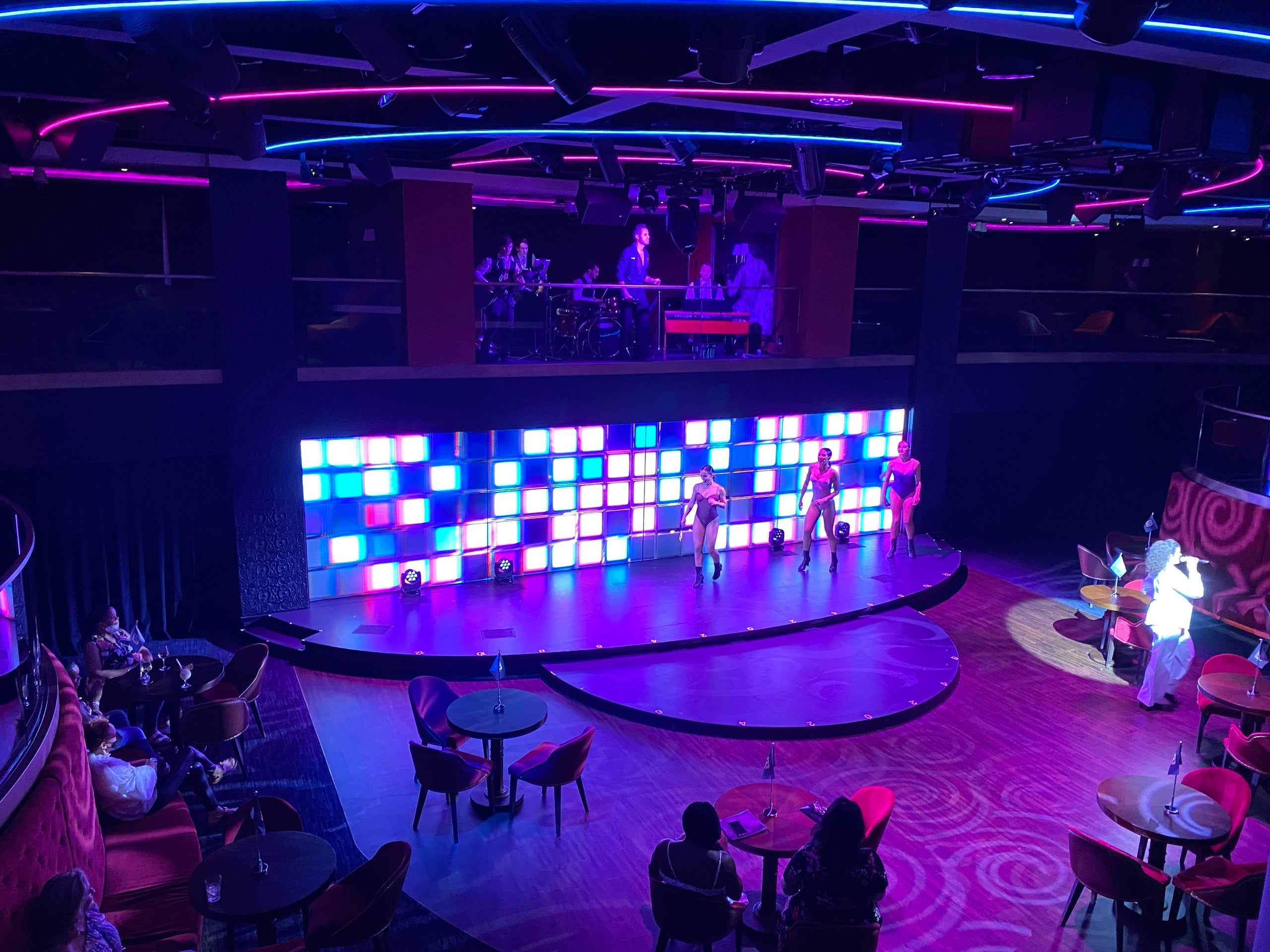
One other new highlight was Le Cabaret Rouge, which serves as a secondary performance space featuring a DJ and nightly shows that set the works of great artists to modern-day music. The lounge has a decidedly French vibe (lots of red velvet) and an interesting viewing setup with both floor seating and chairs set against a high-top bar that runs along a balcony overlooking the stage area.
For those into gaming, the ship houses a dedicated billiard room adjacent to the American Sports Bar. In addition to a pool table, passengers will find tabletop shuffleboard and a pinball machine. If video games are more what you seek, head to the Hall of Games. There, cruisers can pay to try their hand at the vessel's F1 racing simulator; check out the 4D cinema, which offers a selection of interactive games and experiences; or play some arcade basketball or Skee-Ball. All of these cost extra.
Public areas
In addition to the breathtaking atrium spaces and outdoor areas for which the Seaside and Seaside EVO Classes are known, several locations on MSC Seashore require shoutouts, simply for being fantastic.
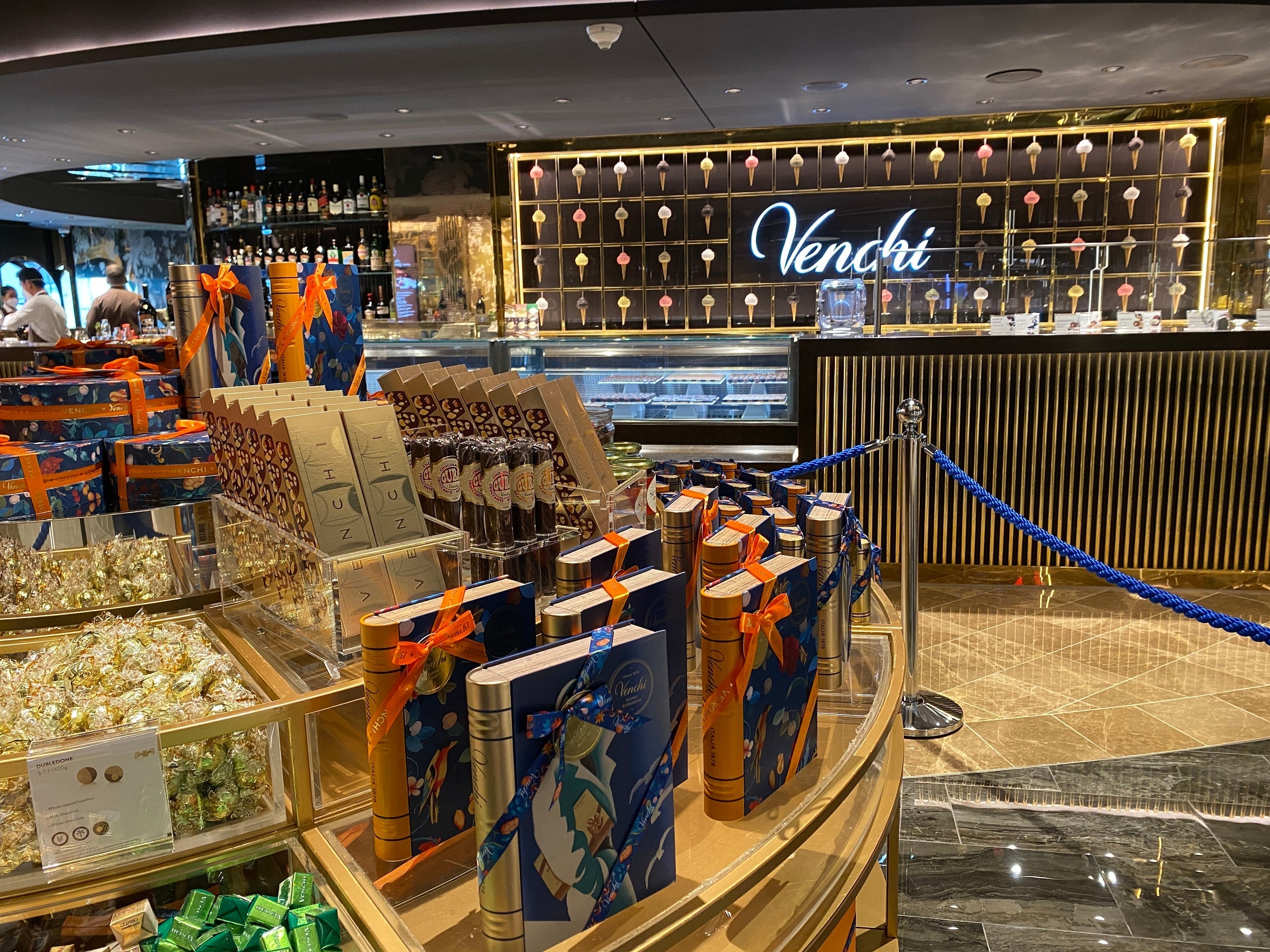
My absolute favorite spots on the whole ship are the Venchi 1878 Chocolate Bar and the Central Park lounge area near it. Venchi is a chocolate lover's dream, but the real testament to just how delicious its offerings are is the fact that I'm not a huge chocolate fan, and I still found myself there frequently. The cappuccinos and hot chocolate are life-changing, and the gelato is a perfect post-dinner, late-night treat. Although the area is open to passing traffic, I found it a quiet place to work, read or meet up with friends for a chat.
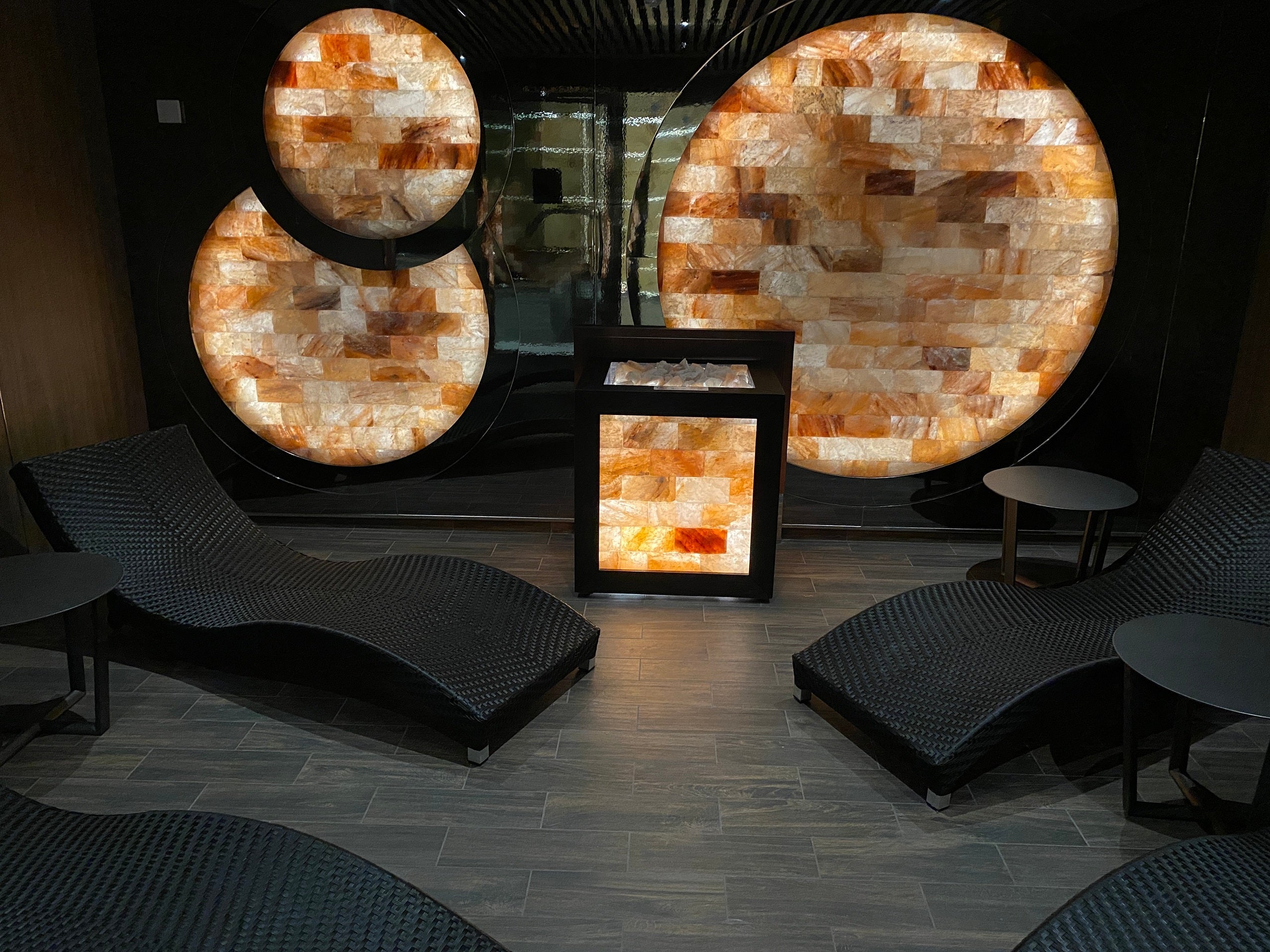
One area where MSC's newest vessels do exceptionally well is all things spa and fitness. Seashore's Aurea Spa and adjacent fitness center dedicate more than 25,000 square feet of onboard space to 21 treatment rooms, a barber shop, a hair and nail salon, a MediSpa, a thalassotherapy pool, changing rooms and an outdoor area with sun loungers and hot tubs. Also included in that space is a massive thermal suite with a staggering array of options like a salt room, saunas, heated tile loungers, a snow room and a sensory steam room.
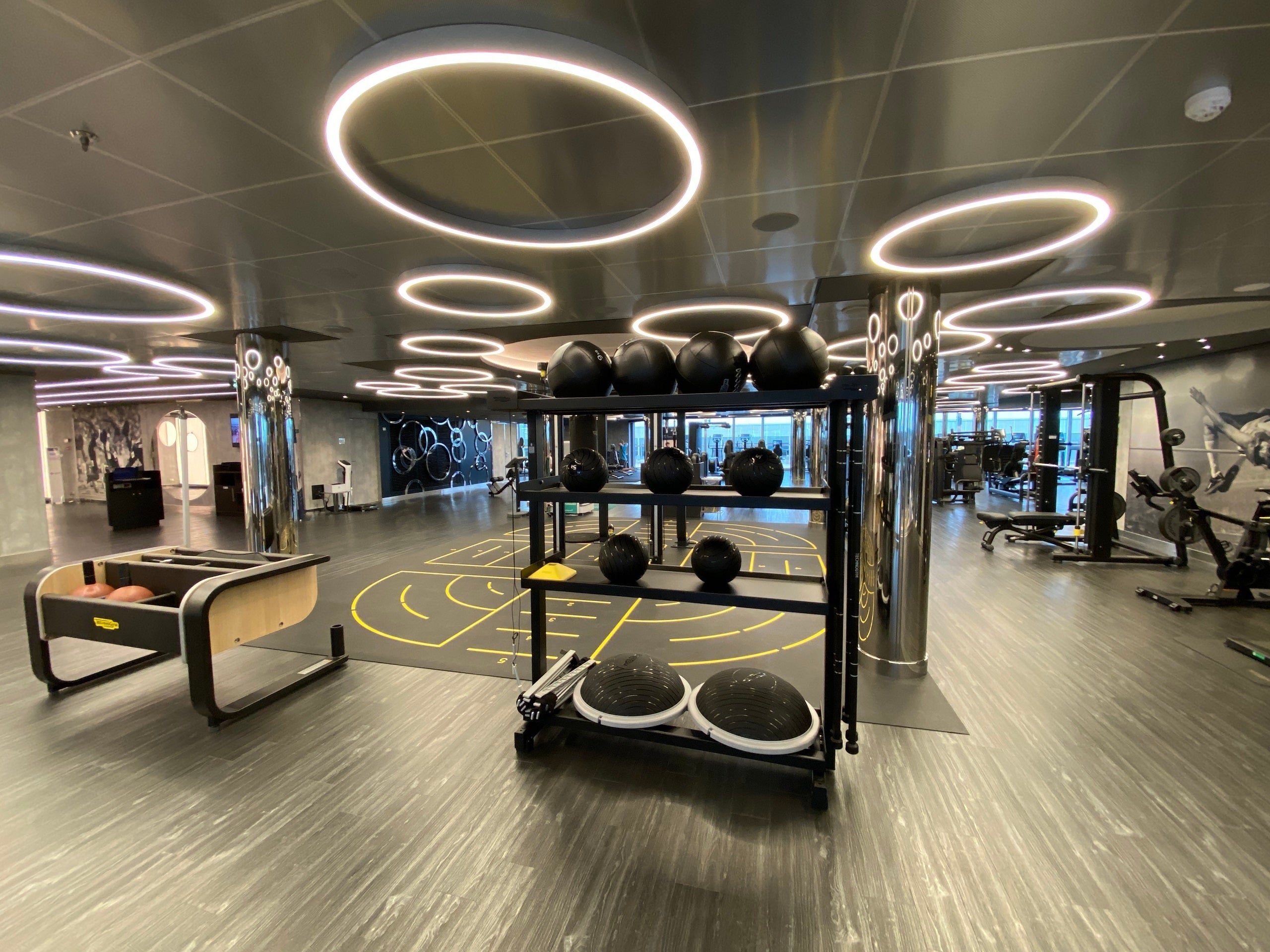
The fitness center, which is one of the largest I've ever seen on a ship, is outfitted with Technogym equipment that includes weight machines, medicine balls, circuit training equipment and cardio machines.
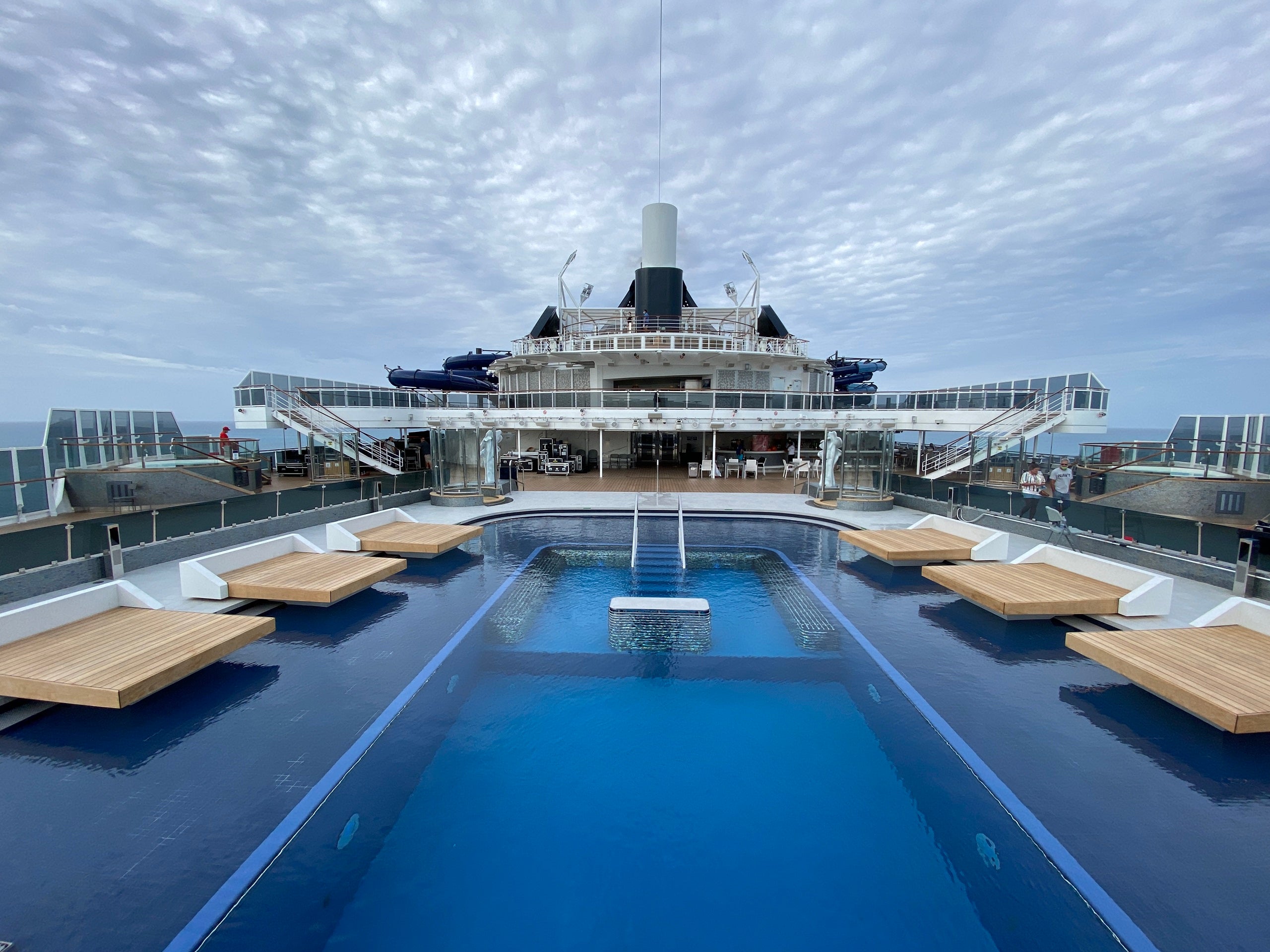
In terms of pools, there are four onboard: the Deck 16 Jungle Pool area that's super family-friendly; the Deck 18 Long Island Pool, which is great for sunbathers; and the private Yacht Club Pool, which is found on Deck 20 and exclusive to Yacht Club passengers. The fourth, the aft-facing Infinity Pool on Deck 8, is one of the most impressive additions on MSC Seashore with its beautiful wake views.
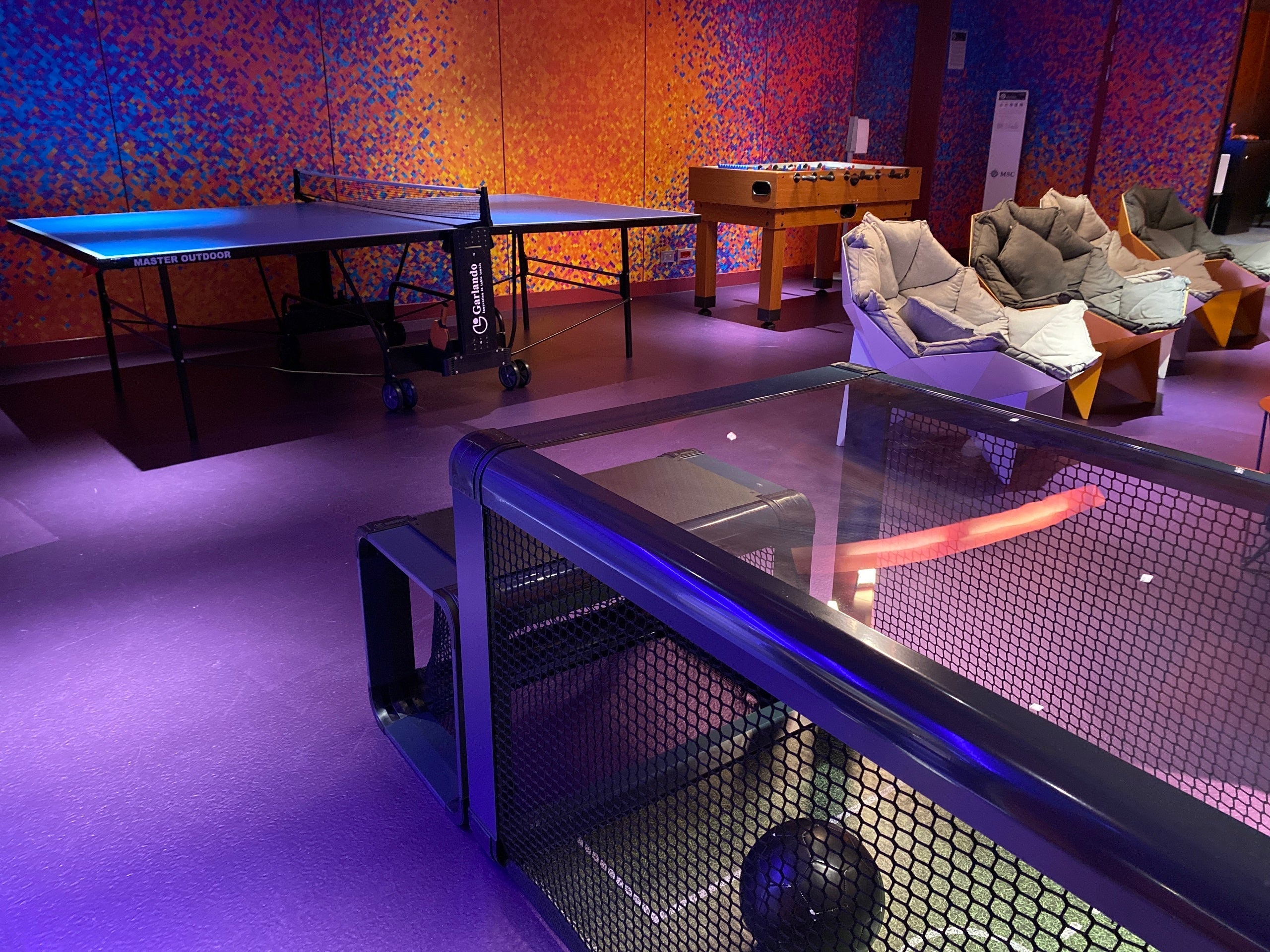
For cruisers with kids, MSC Seashore is a great fit, with 7,500 square feet of children's facilities split among five clubs that cater to different age groups. All have access to a variety of activities, games and toys, but tweens and teens have less structure and may come and go as they please.
Appearances from Doremi (pronounced "doh ray mee"), the line's mascot, are common for younger children, who can also enjoy building with blocks, playing games and conducting science experiments. Activities for older kids include foosball competitions and video games.
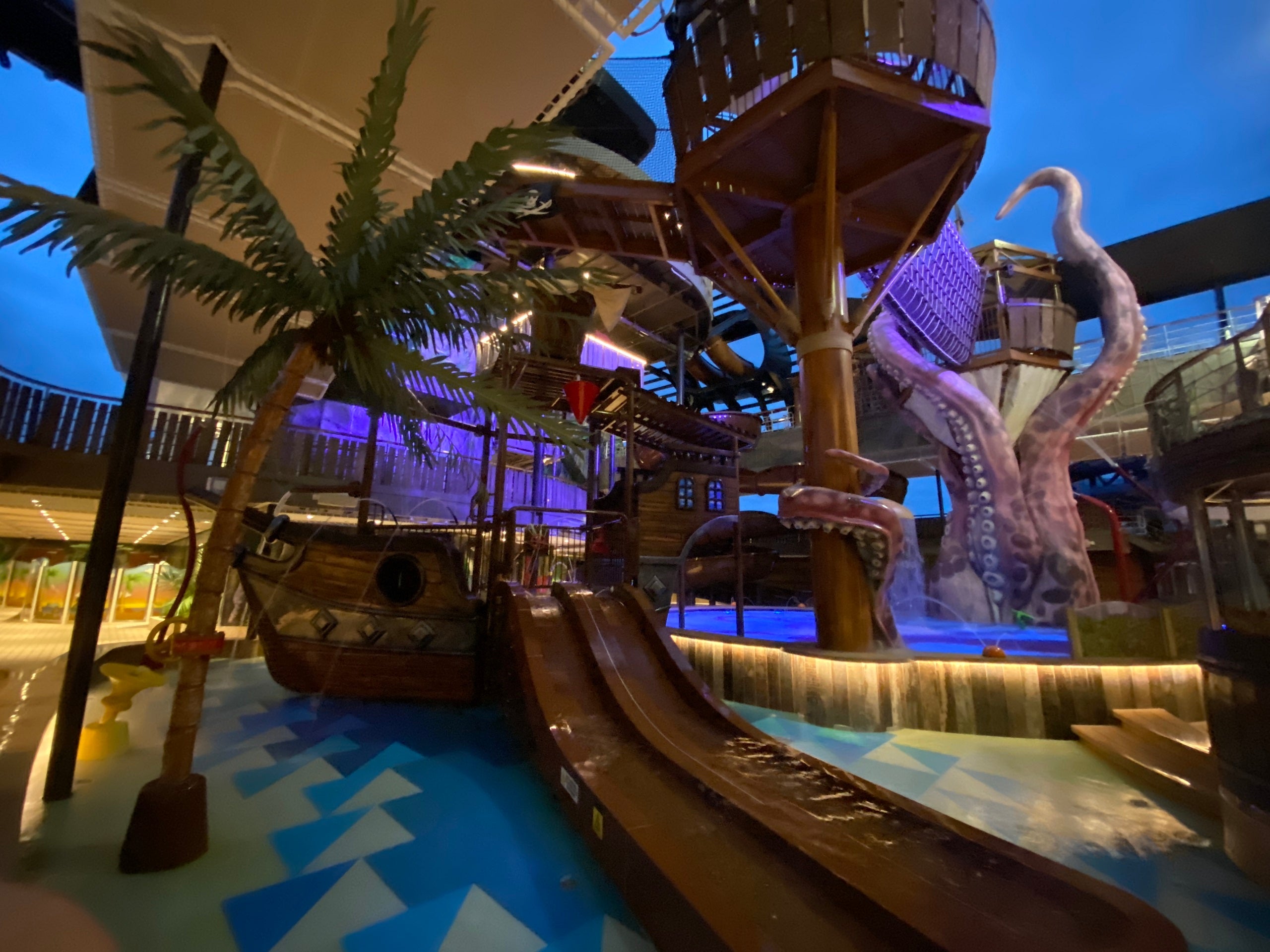
But youth entertainment isn't limited to the kids clubs. The ship also offers a plethora of outdoor fun for children and teens. Spanning decks 18 through 20, a twisting waterslide and the Pirates Cove splash area offer watery fun, including climbing structures, dump buckets and sprayers. On Deck 20, Adventure Trail is a top-of-the-ship bridge that winds its way above Pirates Cove, and a sports court is available for basketball and other active pursuits.

I'm loath to include this, but the millennial in me is super excited about the ship's dedicated photo spots. On Deck 7, as you make your way from midship toward the restaurants and Le Cabaret Rouge, there's a passageway adorned with chrome, mirrors and color-changing lights that will make you feel like you're in a tunnel to another dimension. On the other side is a faux hot-air balloon backed by a huge LED screen with scenery that changes to include famous sites, such as (appropriately) Turkey's Cappadocia. Climb inside for a photo that gives the appearance you're actually there.
Technology
Historically, MSC Cruises has been an early adopter of onboard technology by introducing wearables, rolling out an app, adding in-cabin virtual assistants and employing digital signage. However, in certain instances, I felt like the line implemented technology for technology's sake, rather than to enhance the passenger experience.
I'll start with the elevators. What's notable about them on Seashore is that they're digital. Each elevator bay is outfitted with electronic keypads. After using the touch screen to select the number of the deck you want, you'll be assigned to a particular letter. When the car with that letter arrives, that's the one you'll board to get where you need to go.
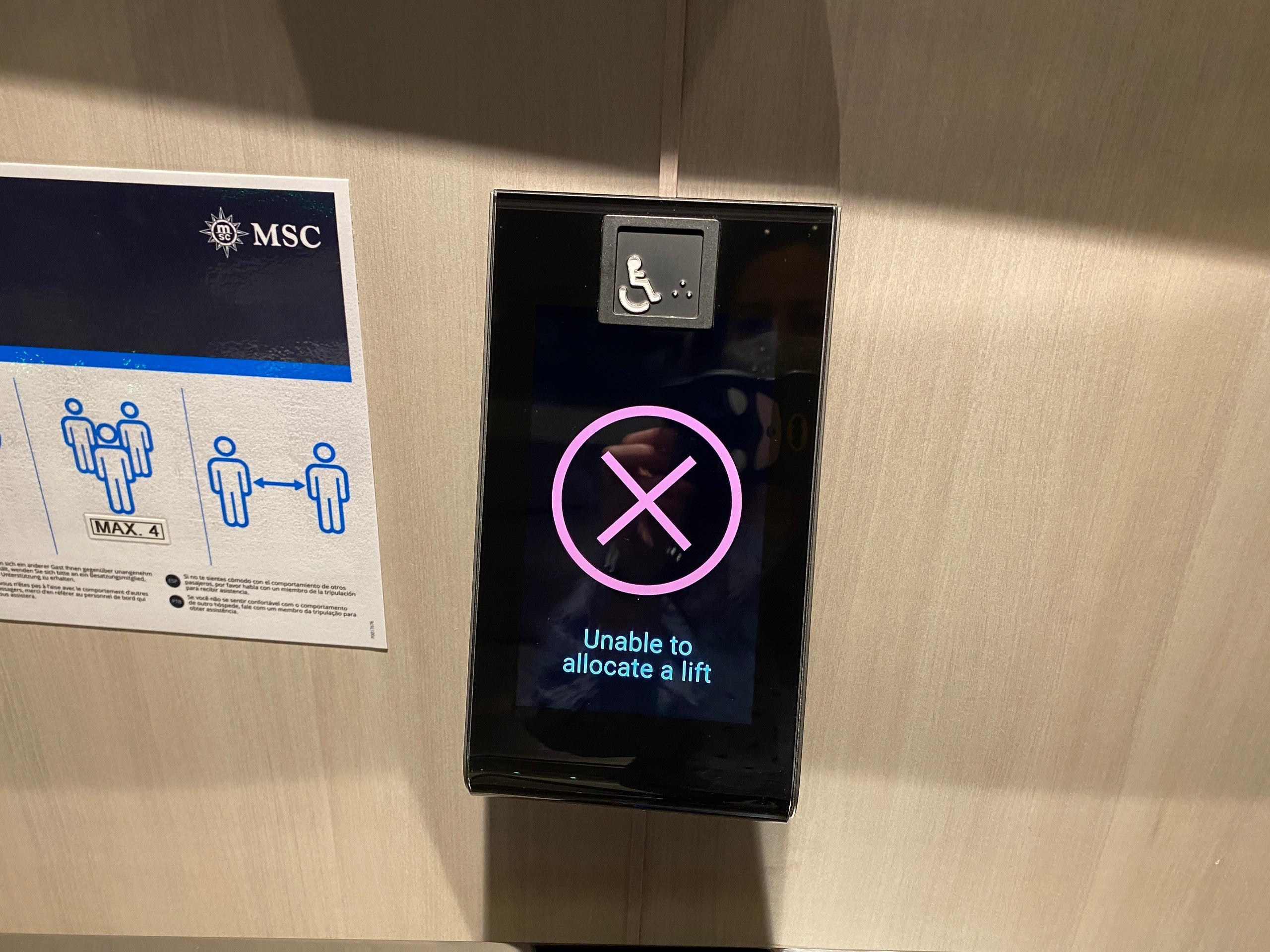
It's a nice idea in theory, but several times my car never showed up, or it whizzed right by the deck I was on without stopping. Other times, I got a keypad error that said "Unable to allocate a lift," which left me taking the stairs. (Honestly, that's what I should have been doing anyway, but people using assistive devices might not have that option when the system doesn't work.)
There are no buttons to push once you're inside the elevators. That means you can't walk up to a bay and piggyback on someone else's ride unless you feel like a rousing game of deck roulette. If you walk into an open car before making a floor selection, you'll be at the mercy of wherever the car is headed next. It also means you can't change your mind about where you want to go after you've entered the car (unless someone else is already going there and selected that deck number before getting inside).
Digital deck plans are located near just about every set of elevators, but few of them offer access to the daily schedule of activities or wayfinders that will help you get to where you need to be. It seems like a missed opportunity to offer a useful passenger service.
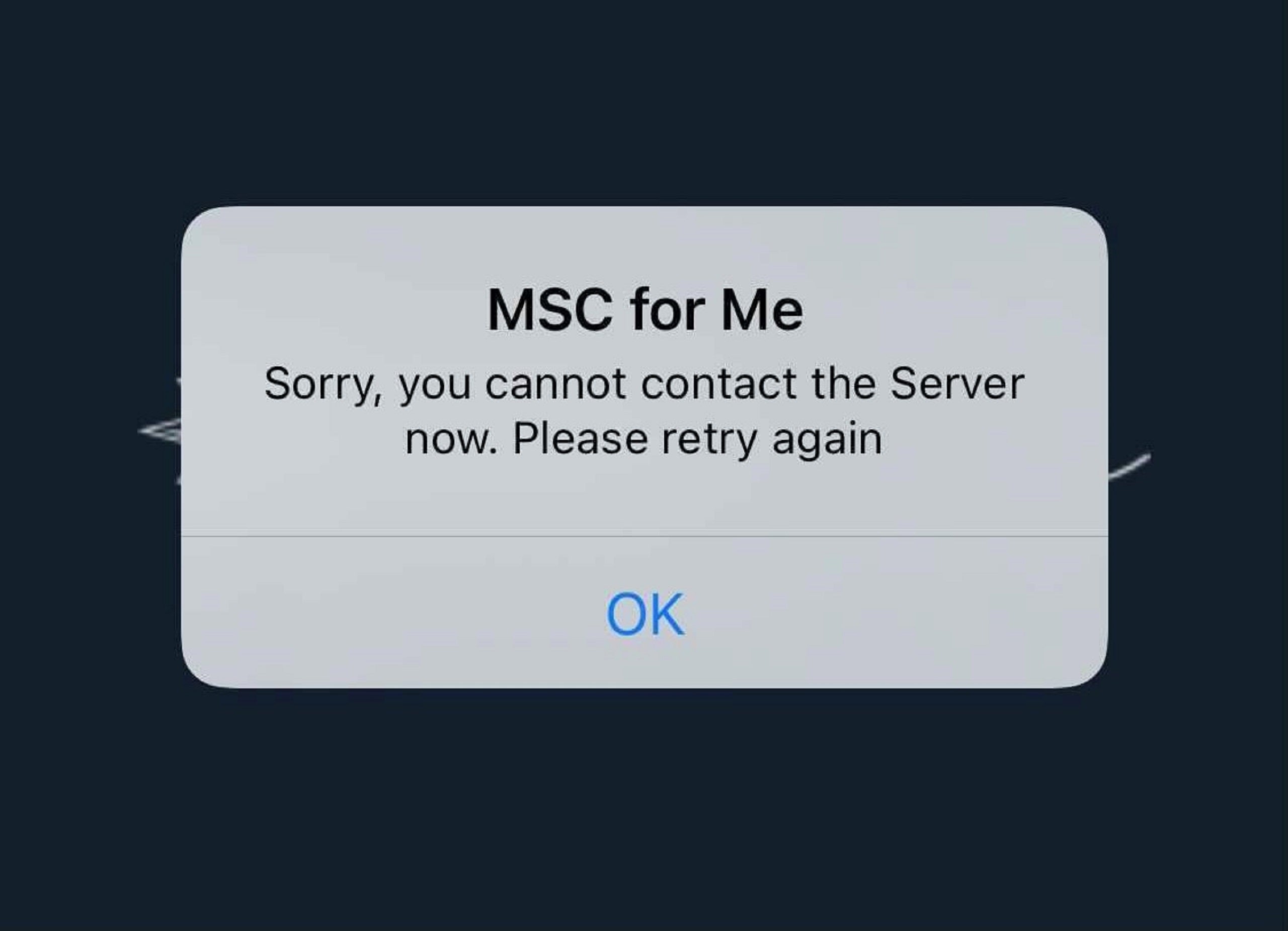
Pre-cruise, I had problems using the line's MSC for Me app to check in, which led to a 40-minute wait to check in at the port on embarkation day — a significant amount of time, given the ship's reduced capacity. It's the only sailing of the nine that I've taken since June that required me to stop at a desk to manually check in.
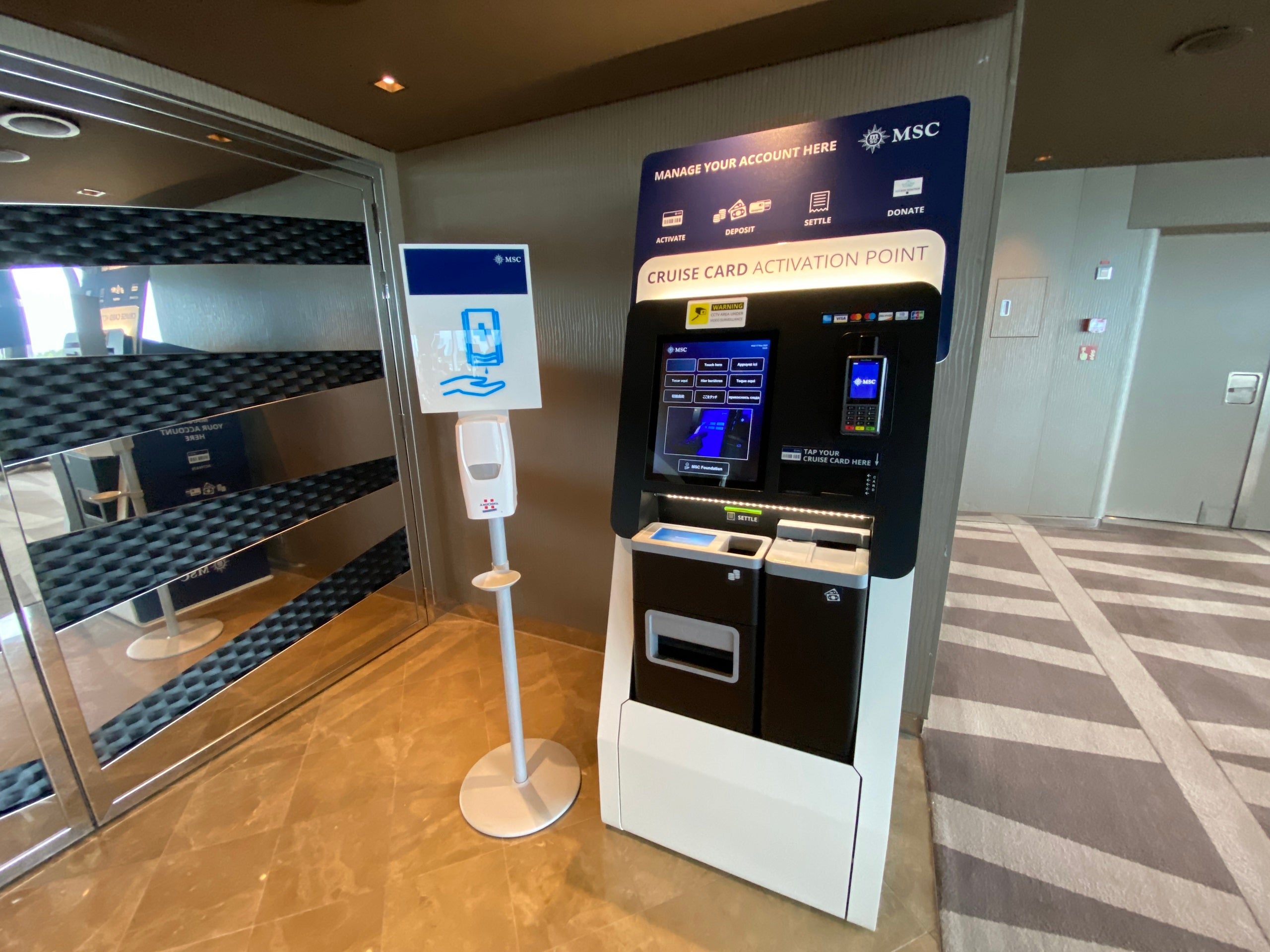
Even then, they weren't able to link my credit card with my onboard account and told me I'd have to do it after I boarded. I headed to the front desk, only to be told that I needed to use one of several kiosks throughout the ship. I found one nearby and was able to link my card painlessly, but after running into so many other snags with the check-in process, it felt like one more hurdle to clear.
Speaking of apps, since the resumption of cruising after 2020's pandemic shutdown, most major cruise lines have transitioned to virtual muster drills that can be completed on your smartphone or on your in-room TV. Passengers normally have a sizable window of time (usually a couple of hours) to complete the mandatory safety briefing.
MSC doesn't offer that. Instead, all passengers must report back to their cabins at a precise time to watch the drill on TV. (It's not available on the app.) Following the drill, you must dial a number on your cabin phone to confirm you've watched the drill. After that, you have to report to your muster station, where a crew member will scan your cruise card.
Not only is the process cumbersome and, frankly, a little bizarre, but it was made more complicated because my TV didn't work. My room steward was finally able to turn it on, but I had to watch the drill in Spanish because the English drill had already concluded by the time we got it sorted out.
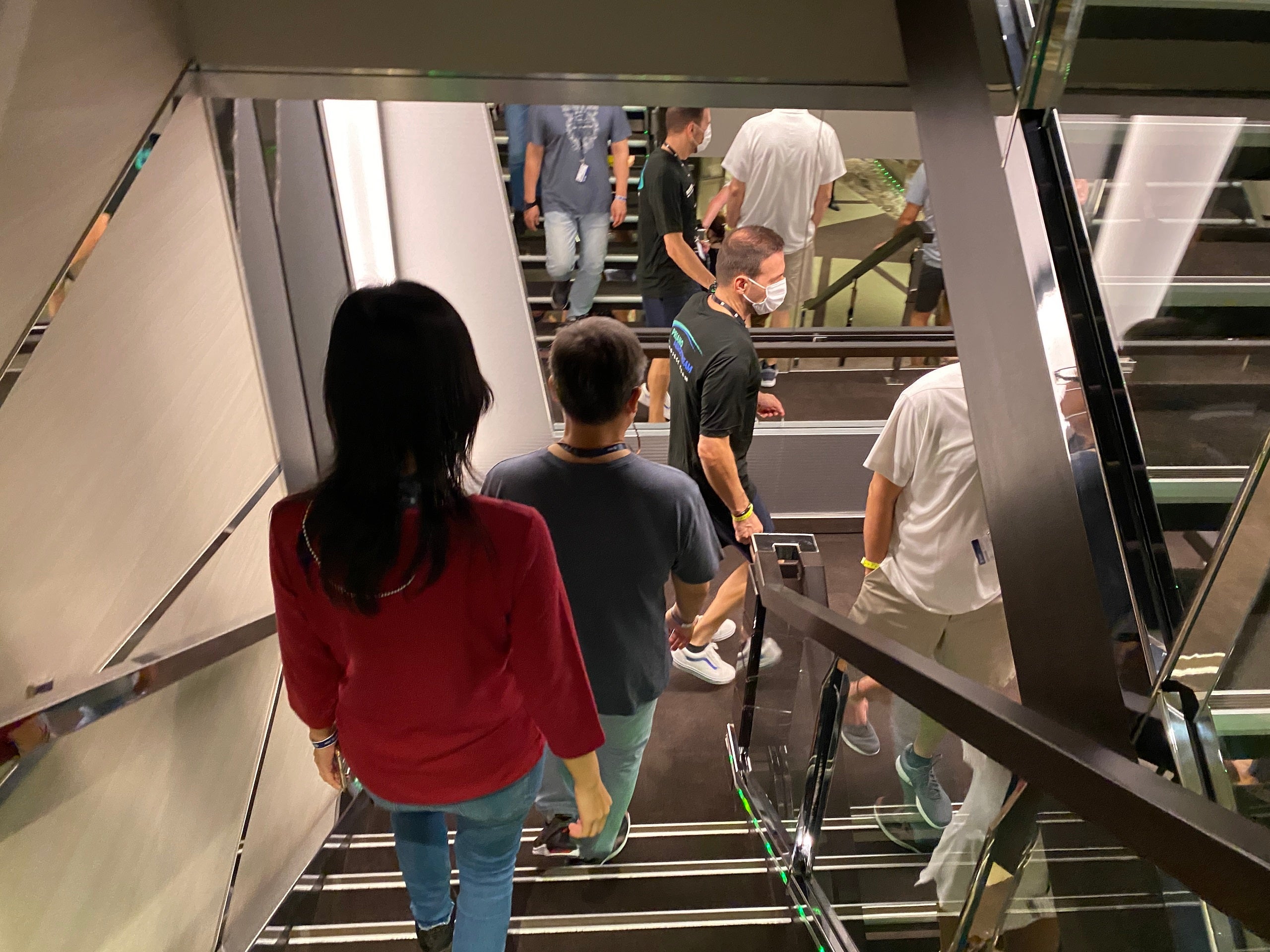
The main purpose of making muster drills digital was to eliminate the need for large numbers of people to gather in proximity for the duration of the drill. By forcing all passengers to complete it at a precise time, it prompts them to head to their muster stations simultaneously, thereby causing the very scenario e-mustering was designed to prevent.
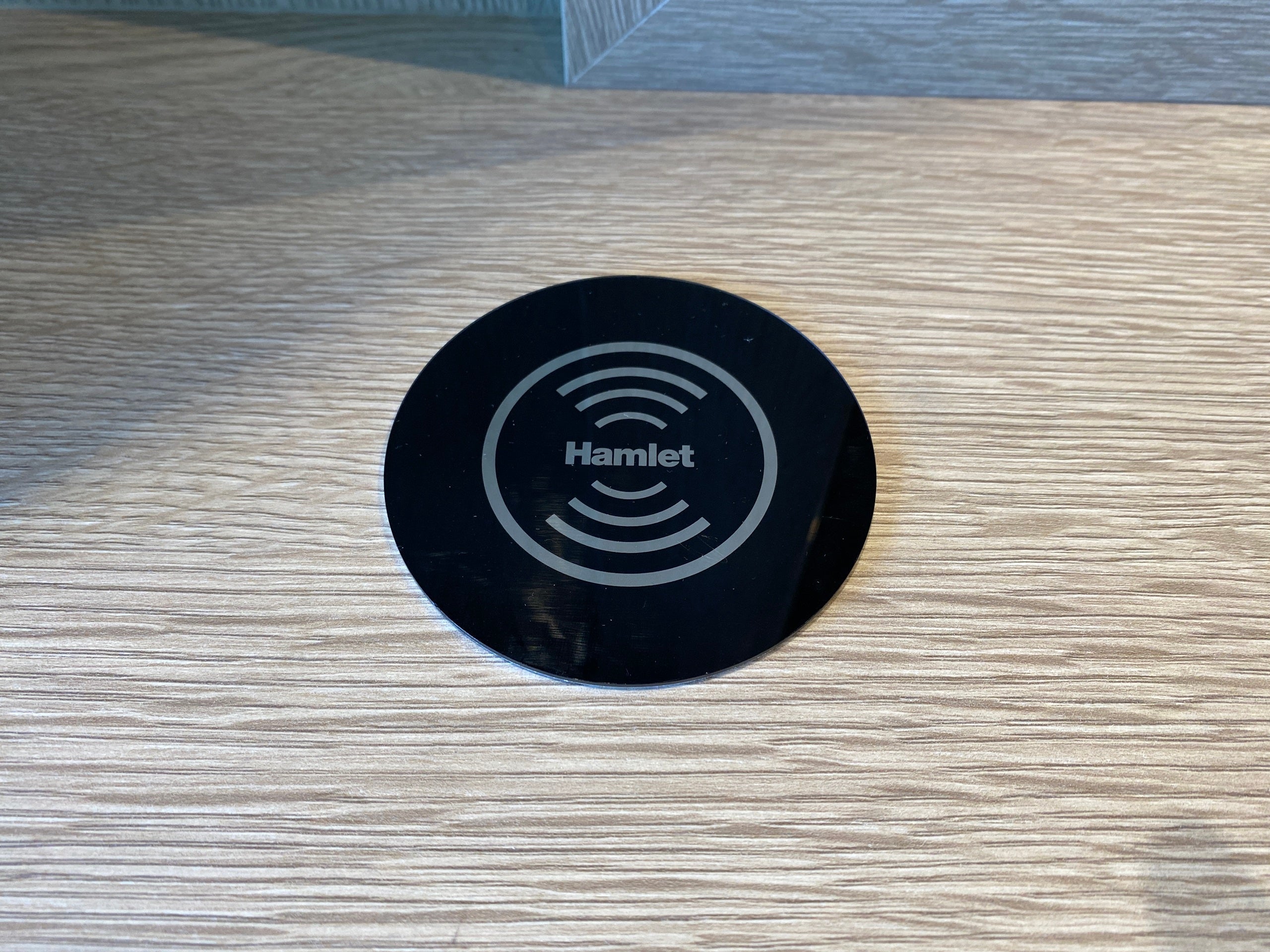
As I mentioned before, the only way to charge devices in your cabin when you're not there (without leaving your keycard behind) is to use Hamlet — a wireless charger built into the desk in each stateroom. It's a thoughtful touch, but it took hours for my phone to charge that way. It also won't work for anyone who has an older device that doesn't support wireless charging. Further, when you're in the room and trying to charge multiple devices, some of the plugs are positioned in a way that makes it impossible to charge them side by side.
Bottom line
The key thing to know about MSC Cruises is that its affordable elegance often puts form over function. With MSC Seashore, the line has definitely made progress in terms of being more "American," but in some areas, the product hasn't evolved. It's a delicate balance between what Europeans think Americans want and what Americans actually want.
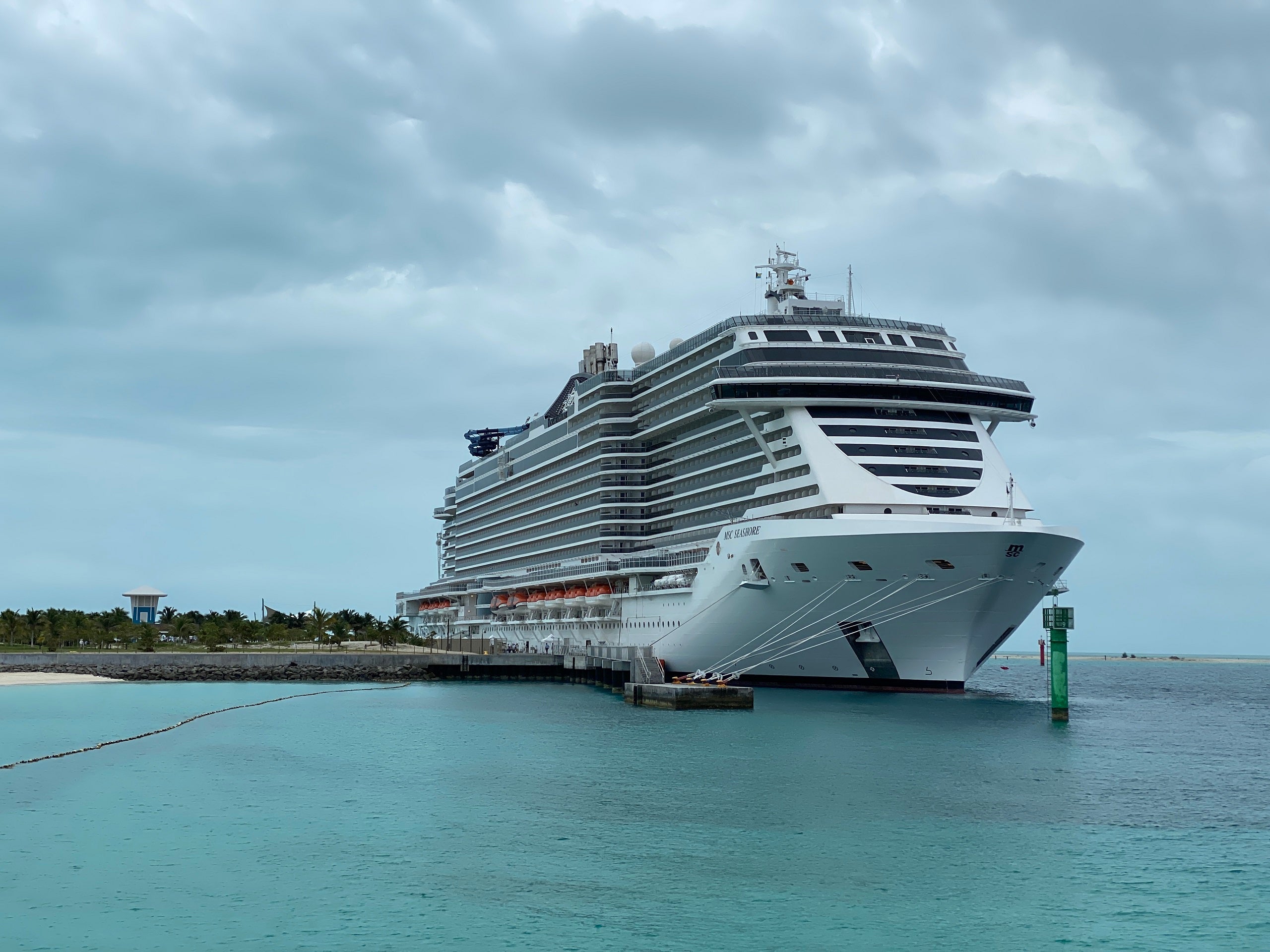
Some elements of the onboard experience have improved since the world welcomed MSC Seaside. On MSC Seashore, crew members are more outgoing, I was offered coffee after dinner, and announcements were all in English.
That said, some things have stayed the same: Dinners run long, standard cabins' showers are painfully small (although there are, thankfully, no curtains to wrangle) and bed-facing closets are difficult to access. In other areas, the cruise line made changes that didn't achieve the desired effect — including some of the entertainment choices and the focus on technology without ensuring it adds to passenger efficiency or enjoyment.
Despite these issues, American passengers can certainly have a fantastic time onboard as long as they know what to expect ahead of time: a reasonably priced vacation on an astoundingly elegant ship that might hold a few surprises.
TPG featured card
at Capital One's secure site
Terms & restrictions apply. See rates & fees.
| 5X miles | Earn 5X miles on hotels, vacation rentals and rental cars booked through Capital One Travel |
| 2X miles | Earn unlimited 2X miles on every purchase, every day |
Pros
- Stellar welcome offer of 75,000 miles after spending $4,000 on purchases in the first three months from account opening. Plus, a $250 Capital One Travel credit to use in your first cardholder year upon account opening.
- You'll earn 2 miles per dollar on every purchase, which means you won't have to worry about memorizing bonus categories
- Rewards are versatile and can be redeemed for a statement credit or transferred to Capital One’s transfer partners
Cons
- Highest bonus-earning categories only on travel booked via Capital One Travel
- LIMITED-TIME OFFER: Enjoy $250 to use on Capital One Travel in your first cardholder year, plus earn 75,000 bonus miles once you spend $4,000 on purchases within the first 3 months from account opening - that’s equal to $1,000 in travel
- Earn unlimited 2X miles on every purchase, every day
- Earn 5X miles on hotels, vacation rentals and rental cars booked through Capital One Travel
- Miles won't expire for the life of the account and there's no limit to how many you can earn
- Receive up to a $120 credit for Global Entry or TSA PreCheck®
- Use your miles to get reimbursed for any travel purchase—or redeem by booking a trip through Capital One Travel
- Enjoy a $50 experience credit and other premium benefits with every hotel and vacation rental booked from the Lifestyle Collection
- Transfer your miles to your choice of 15+ travel loyalty programs
- Top rated mobile app

